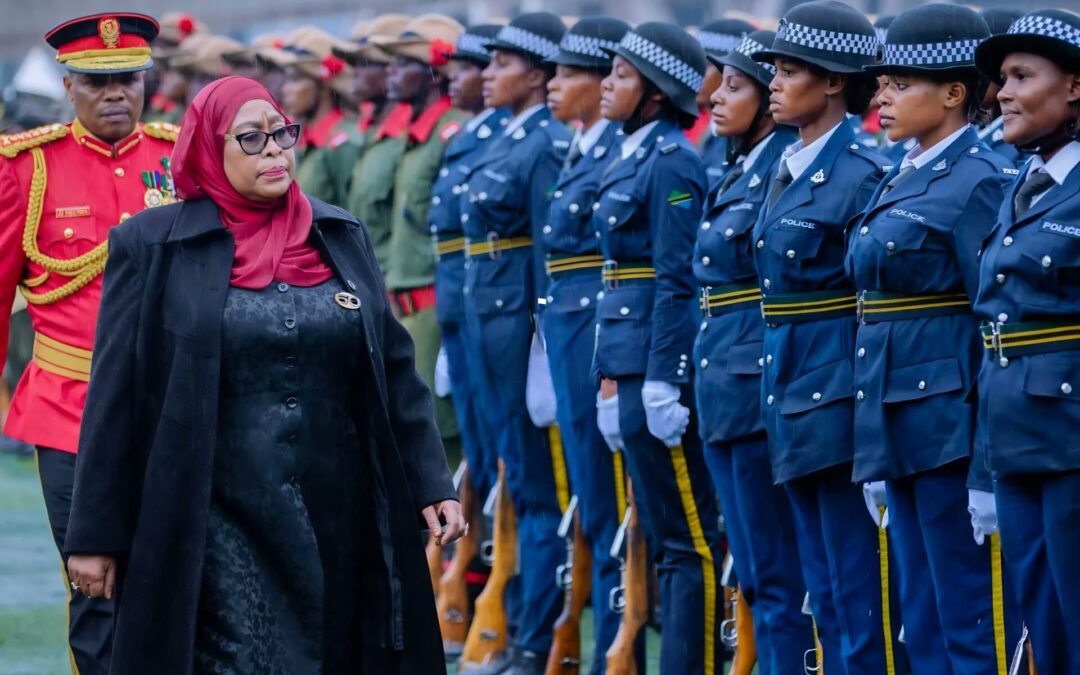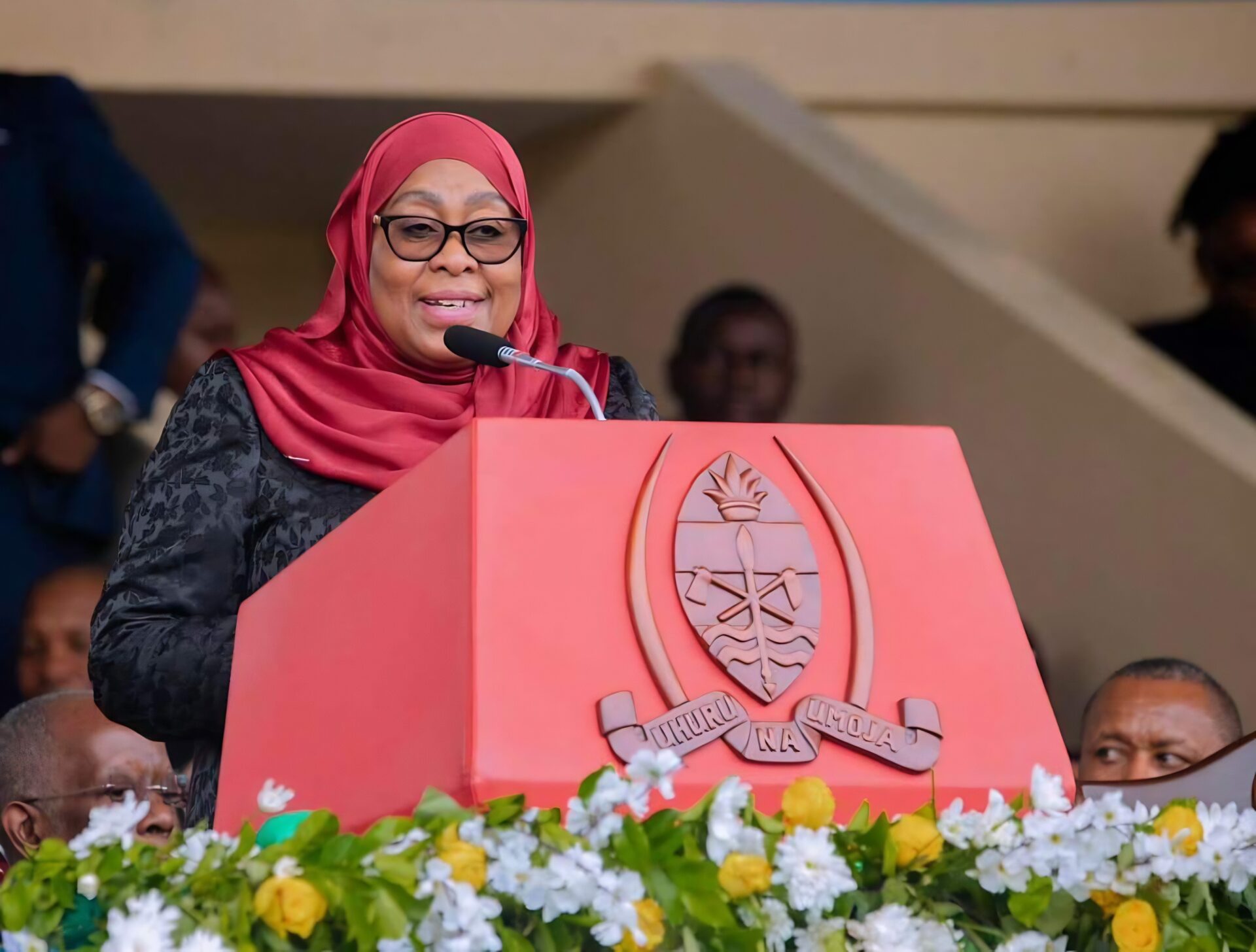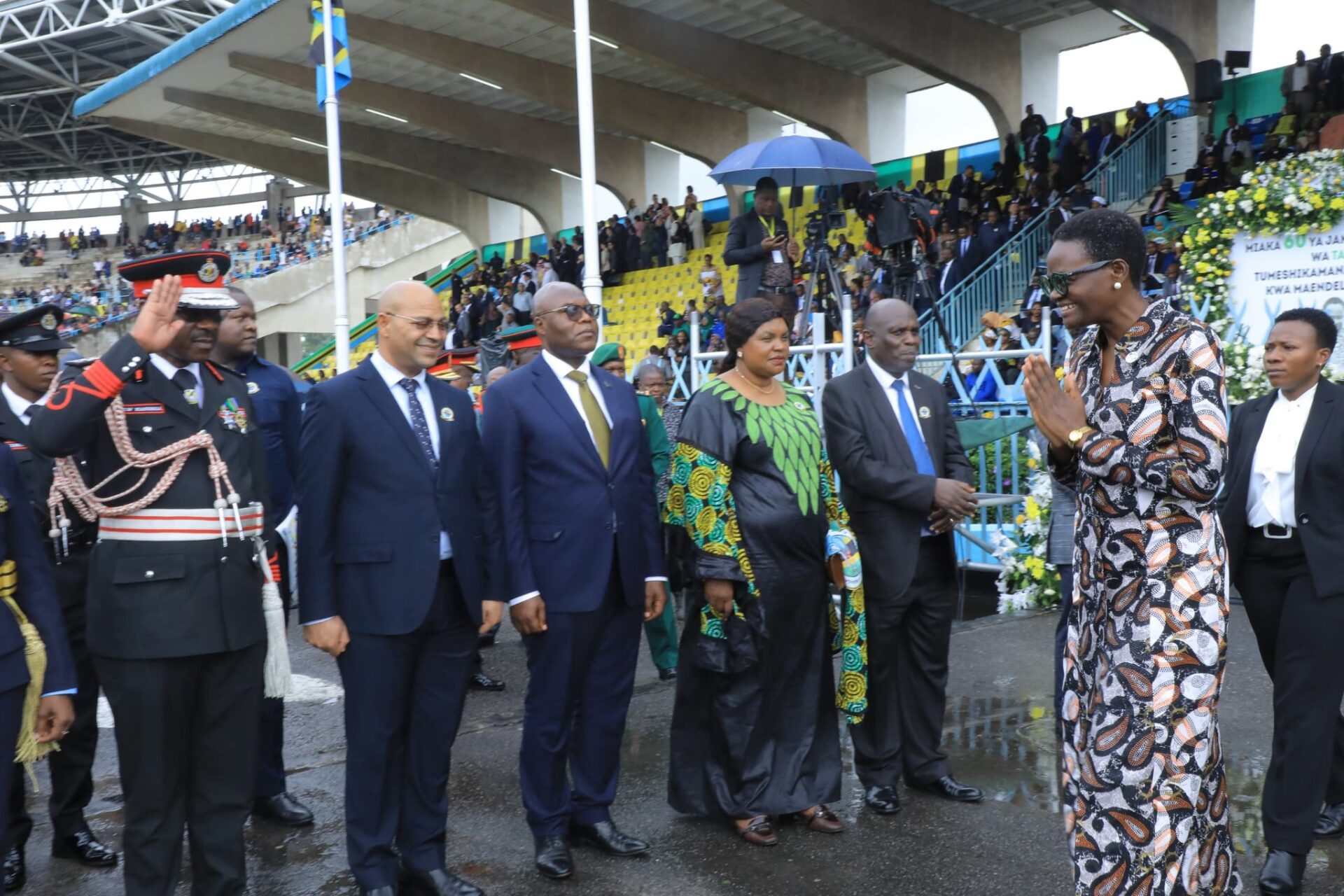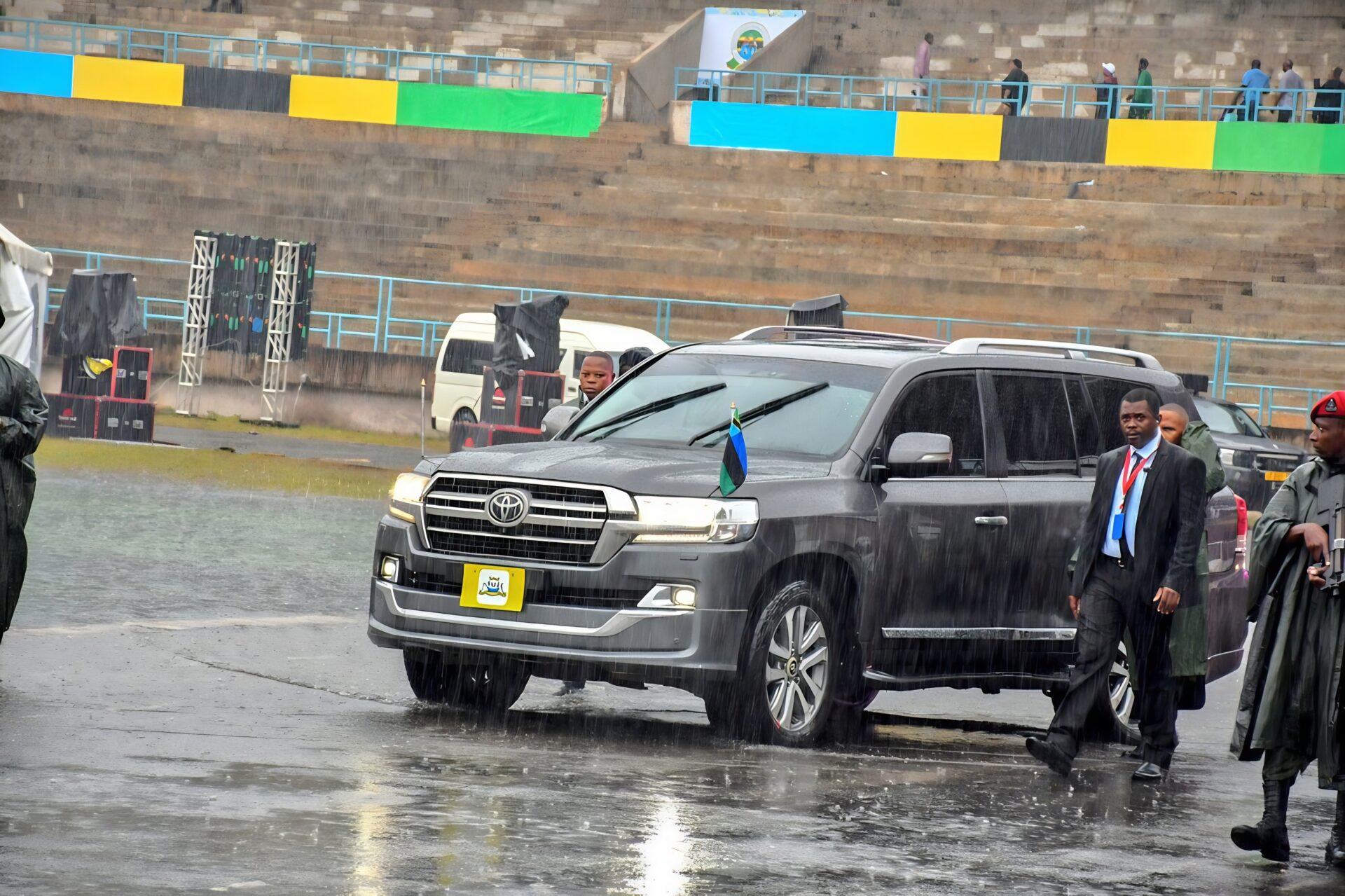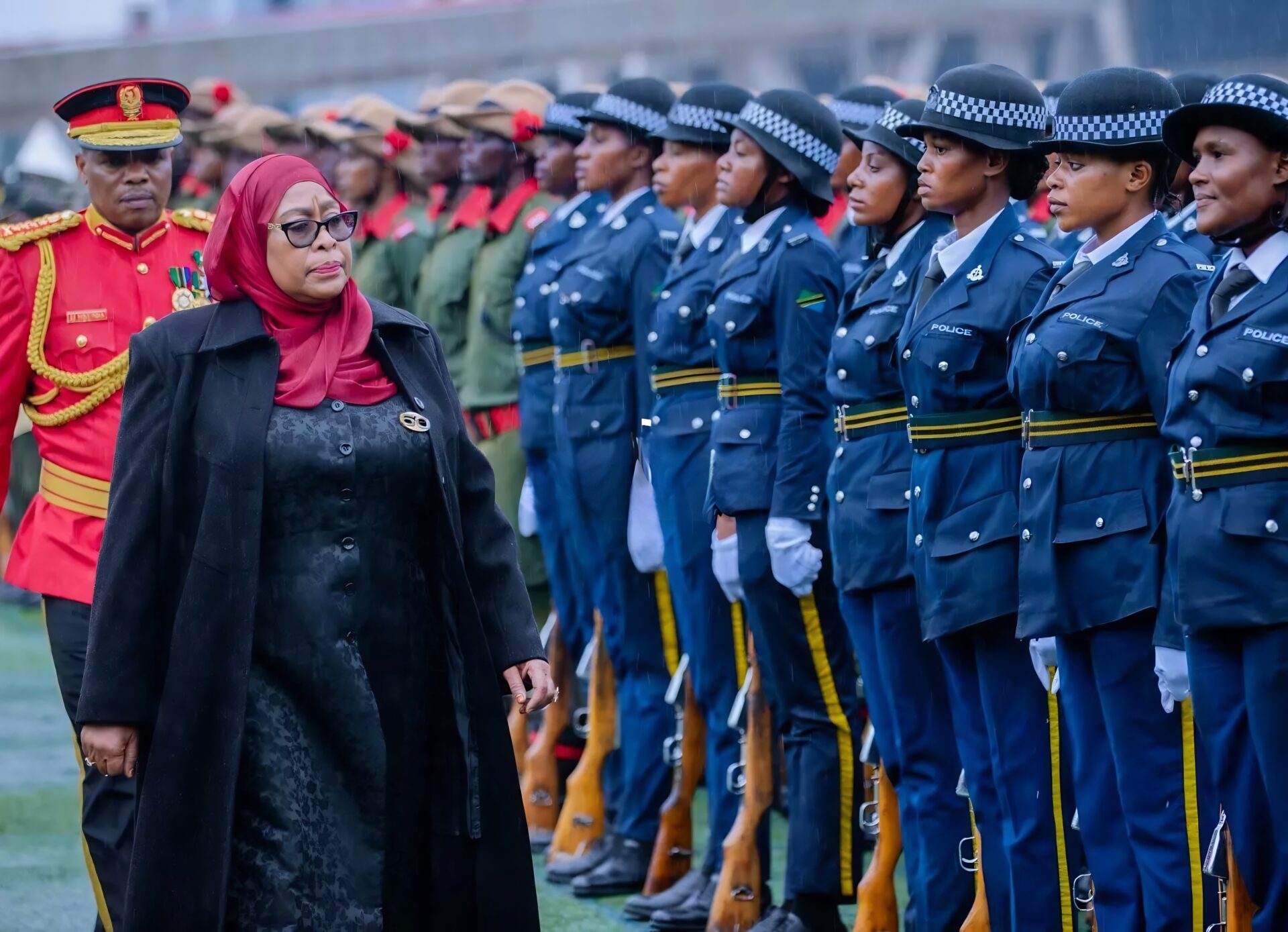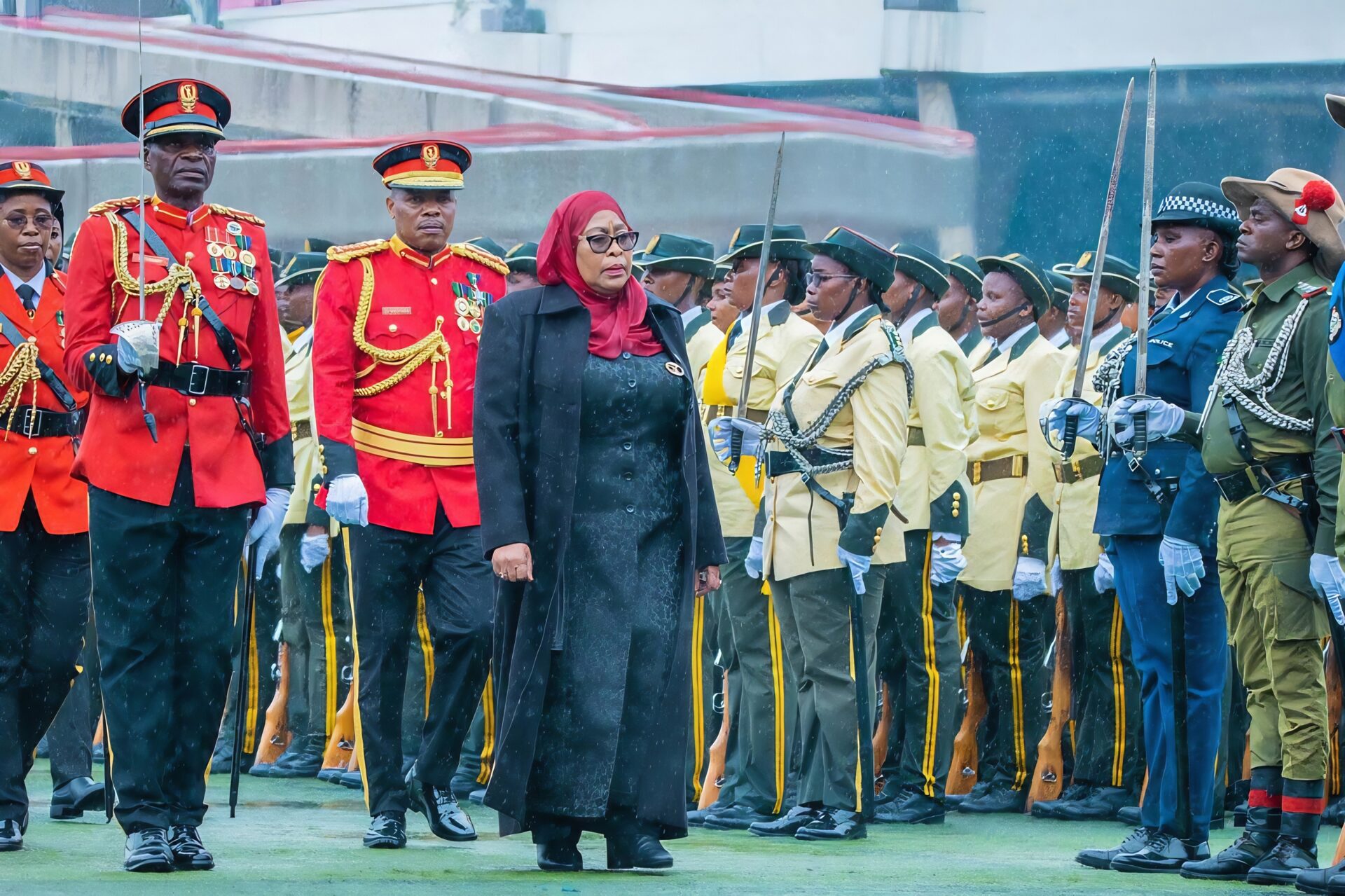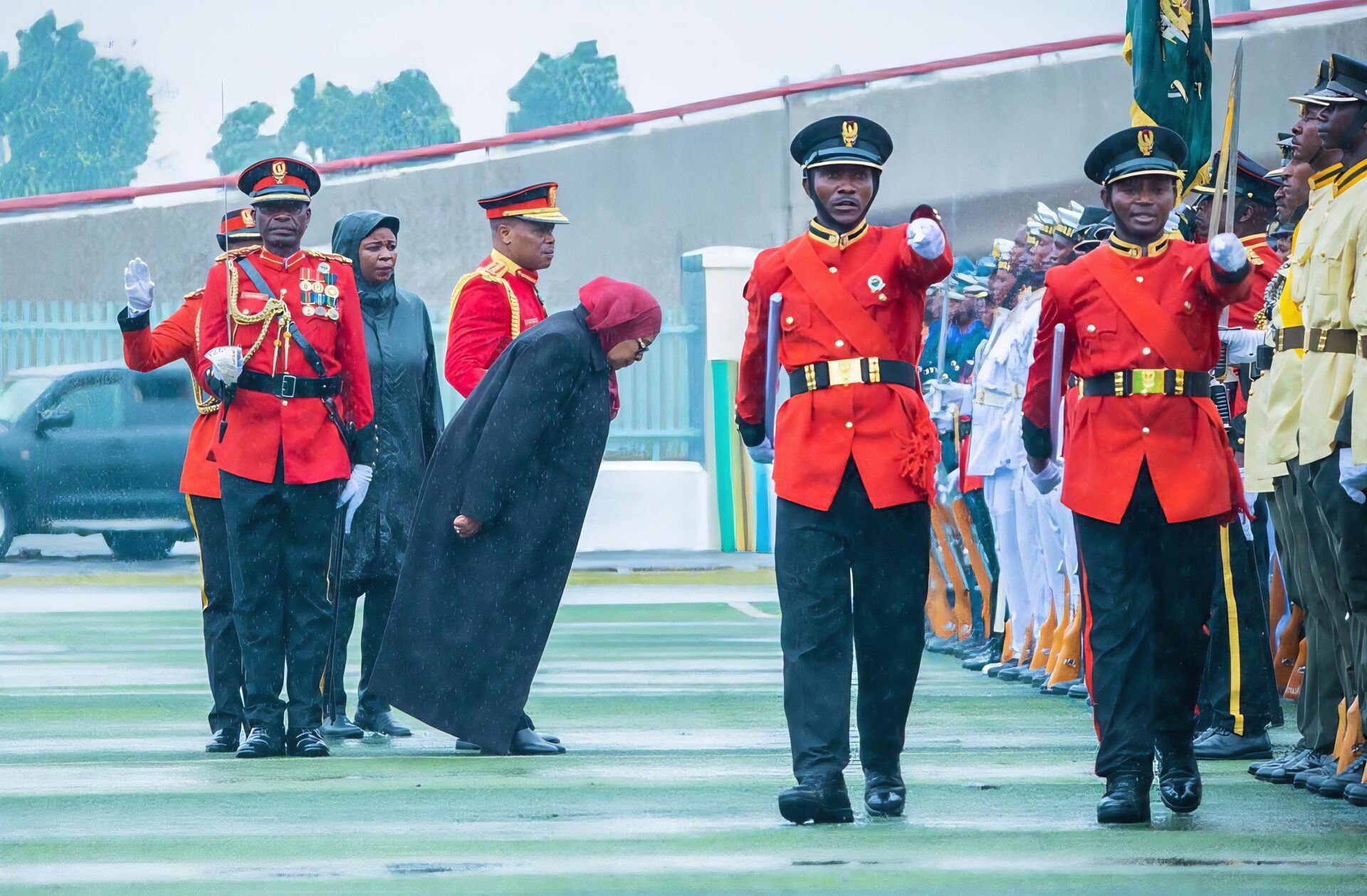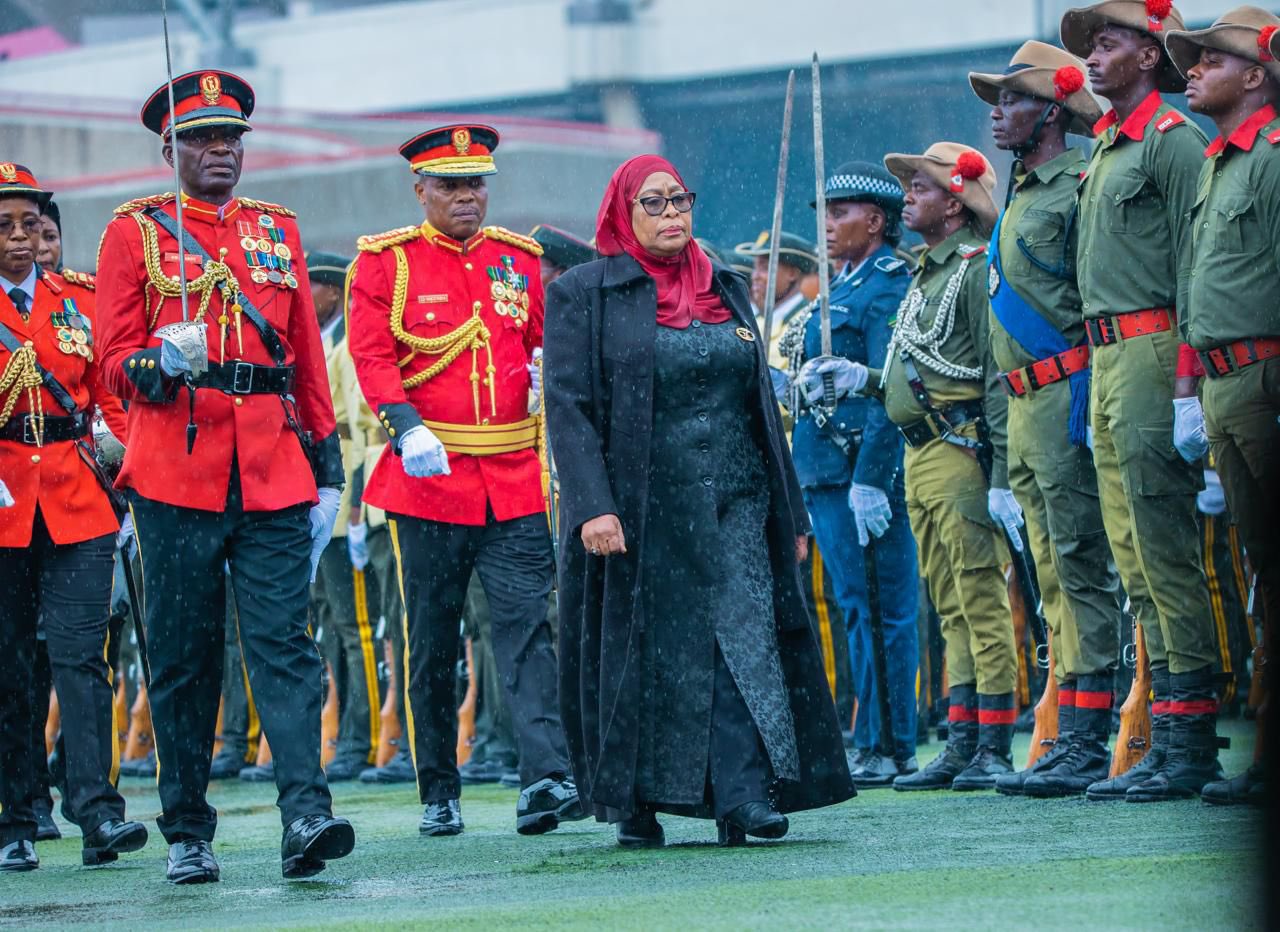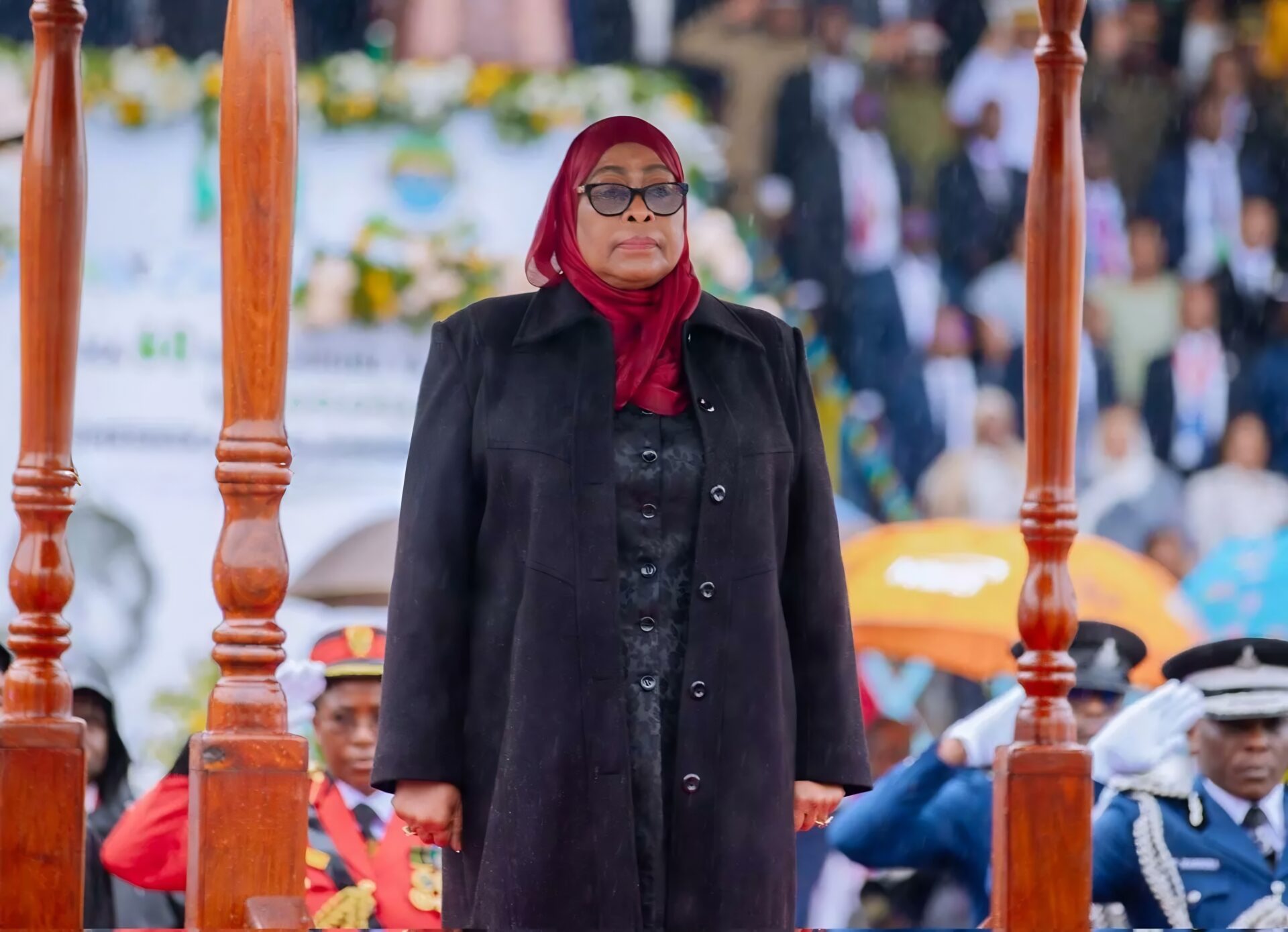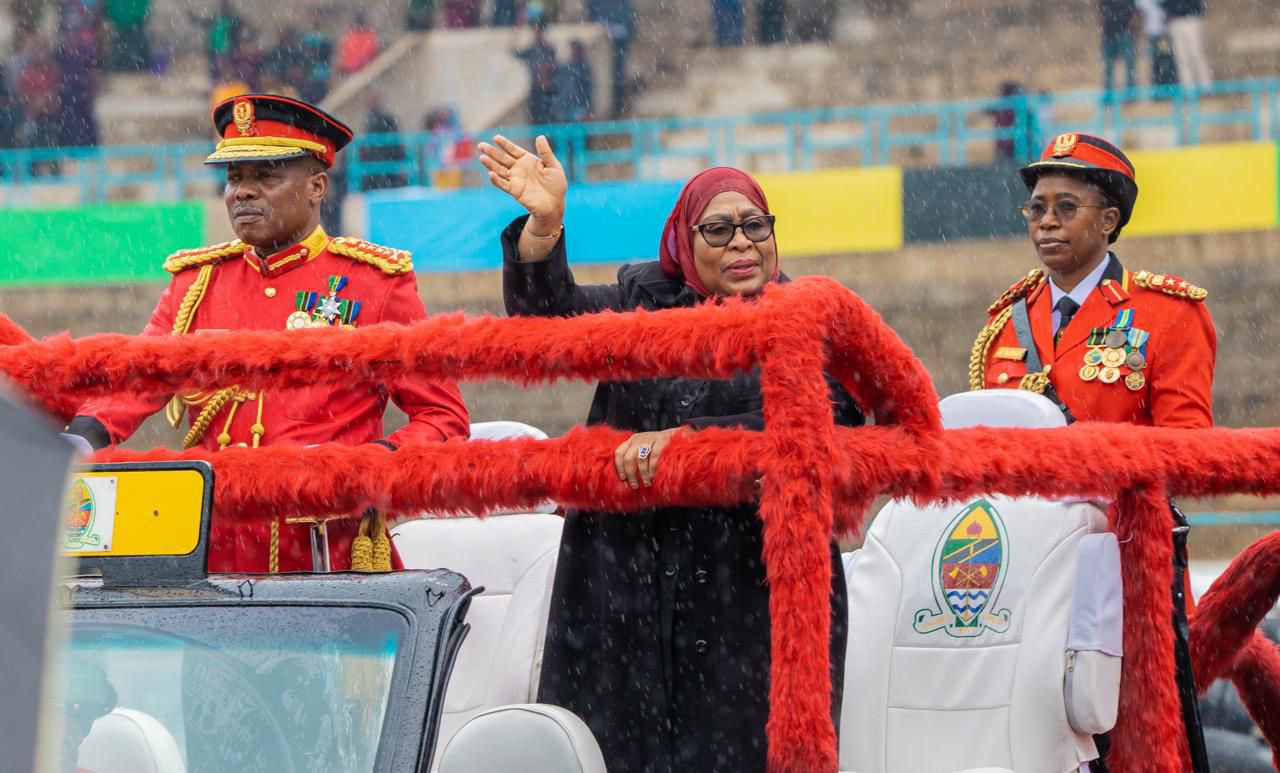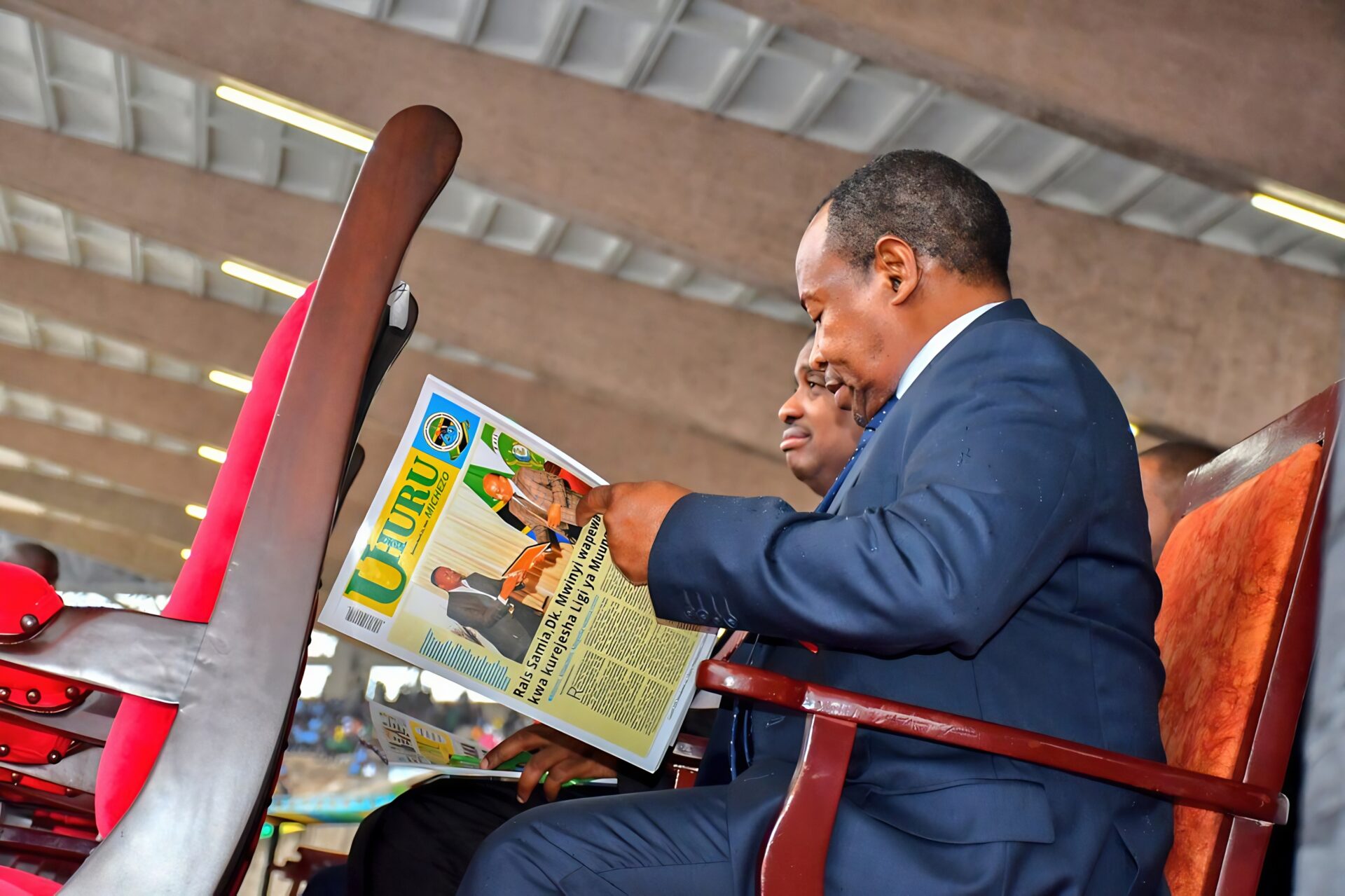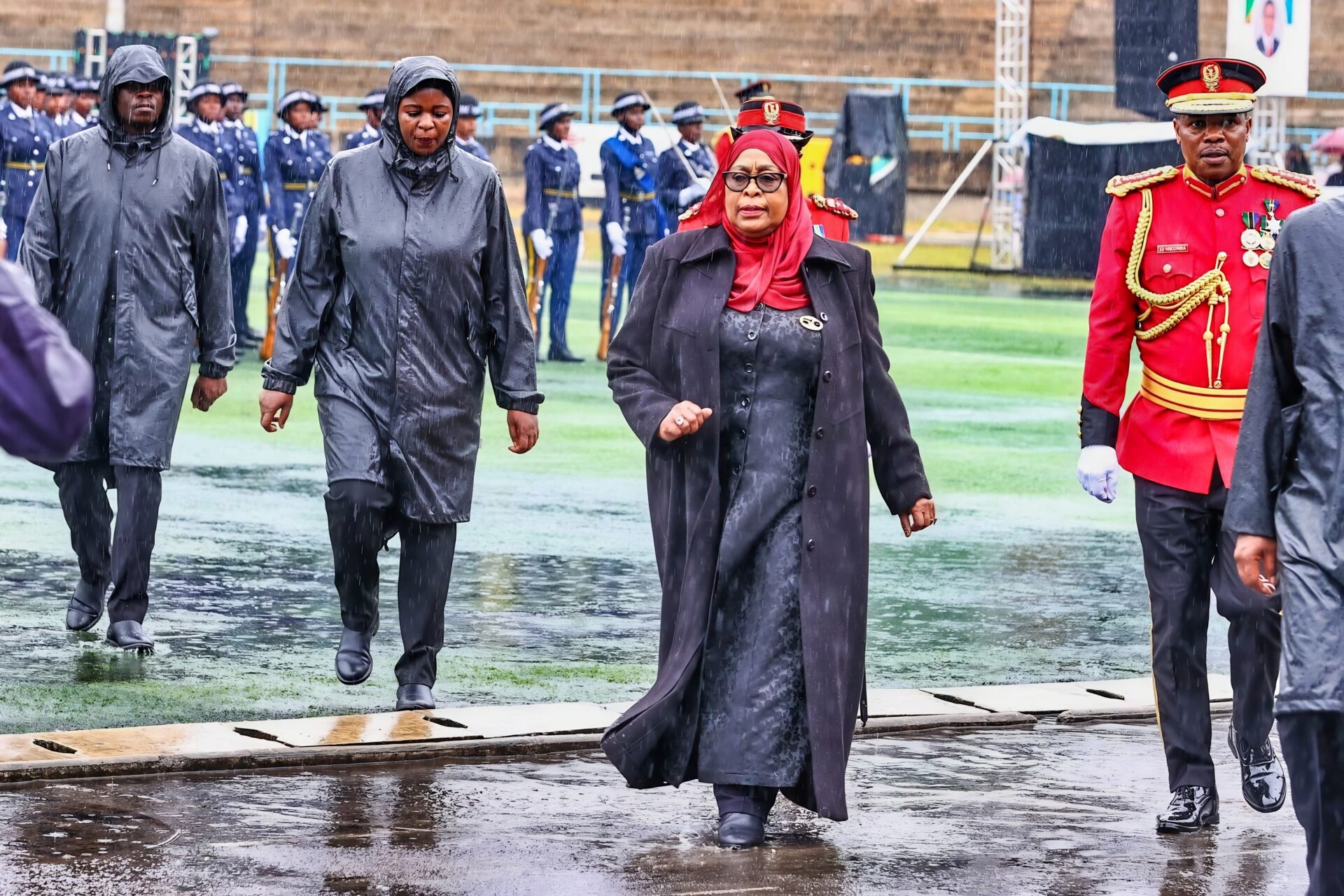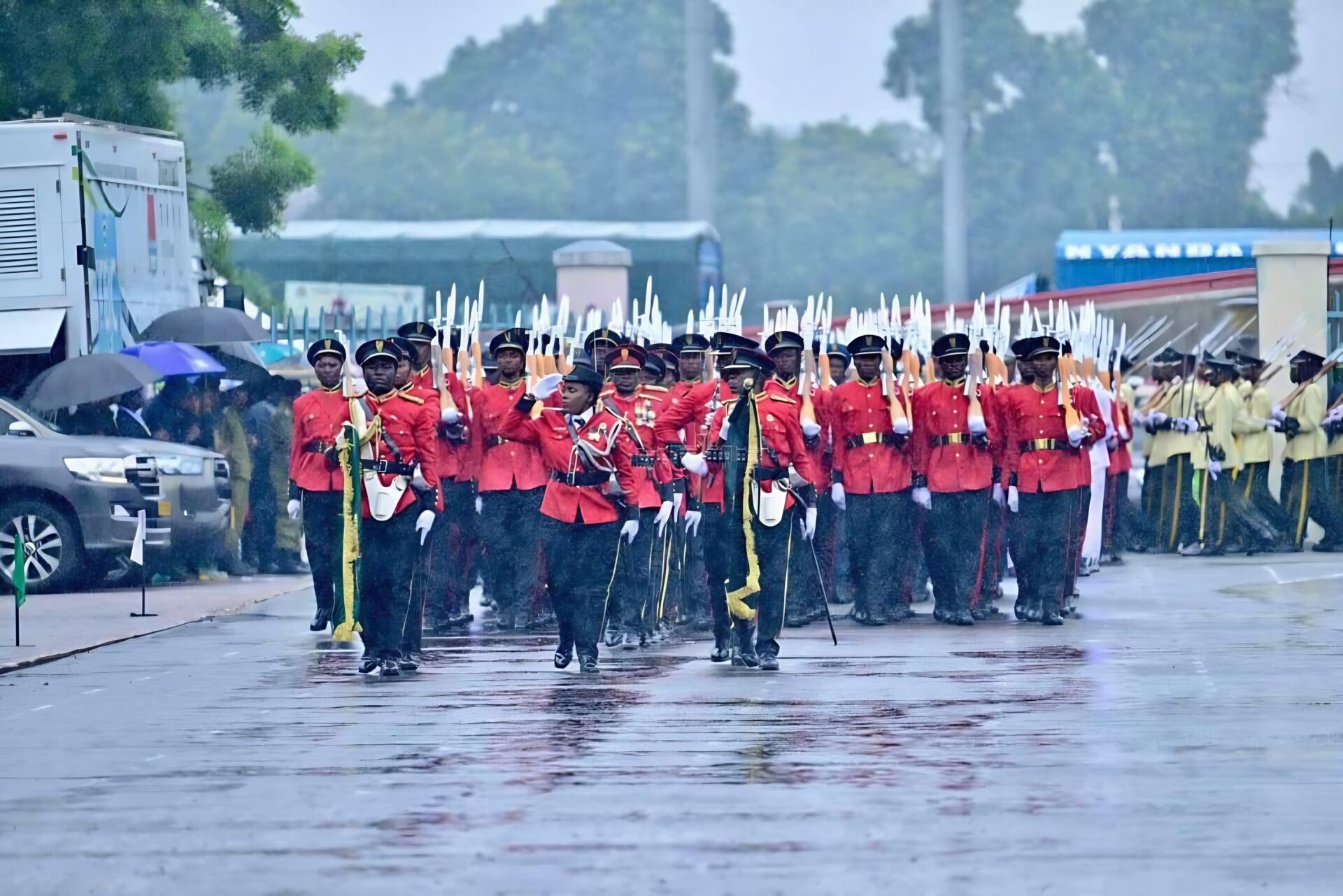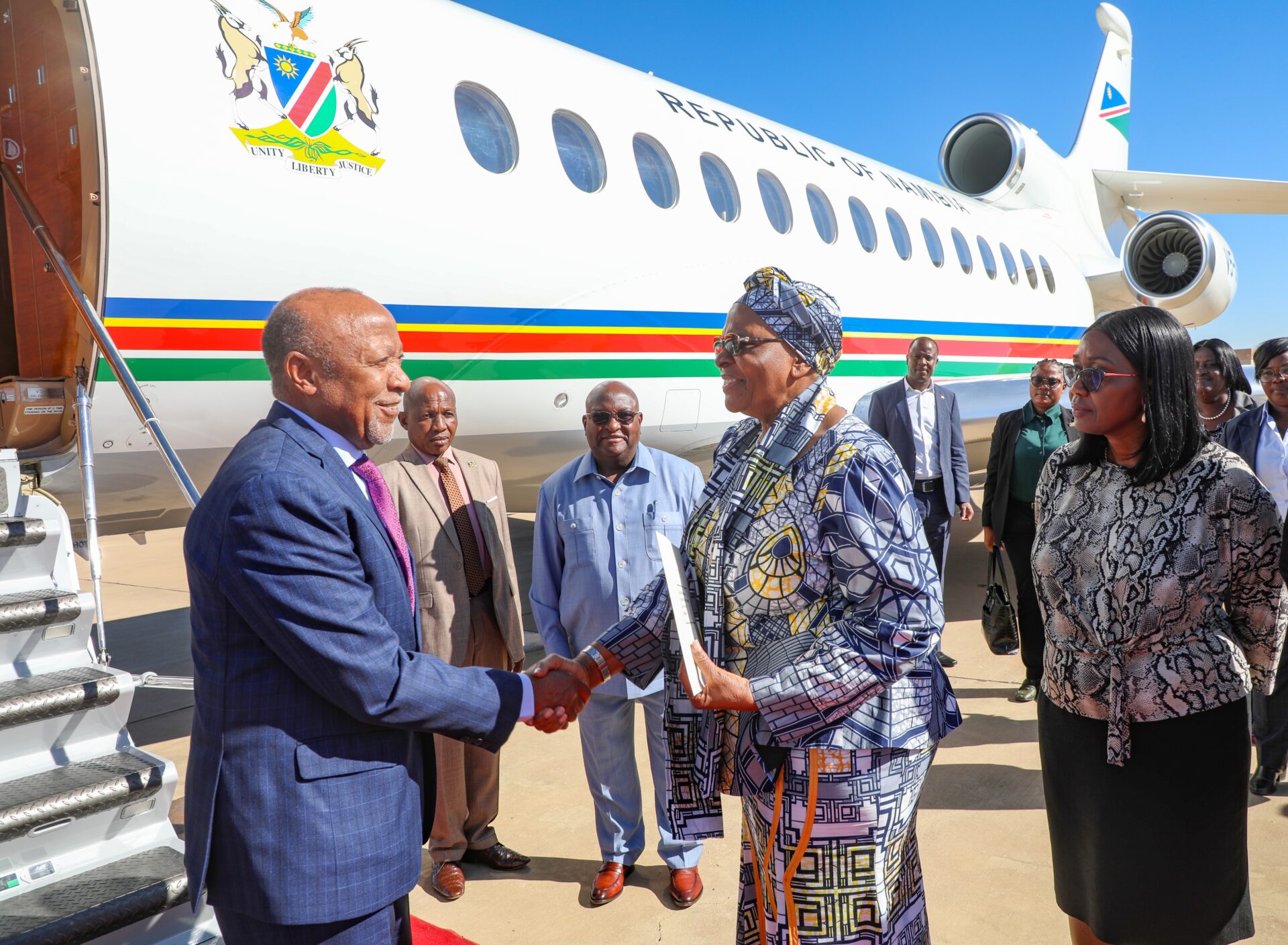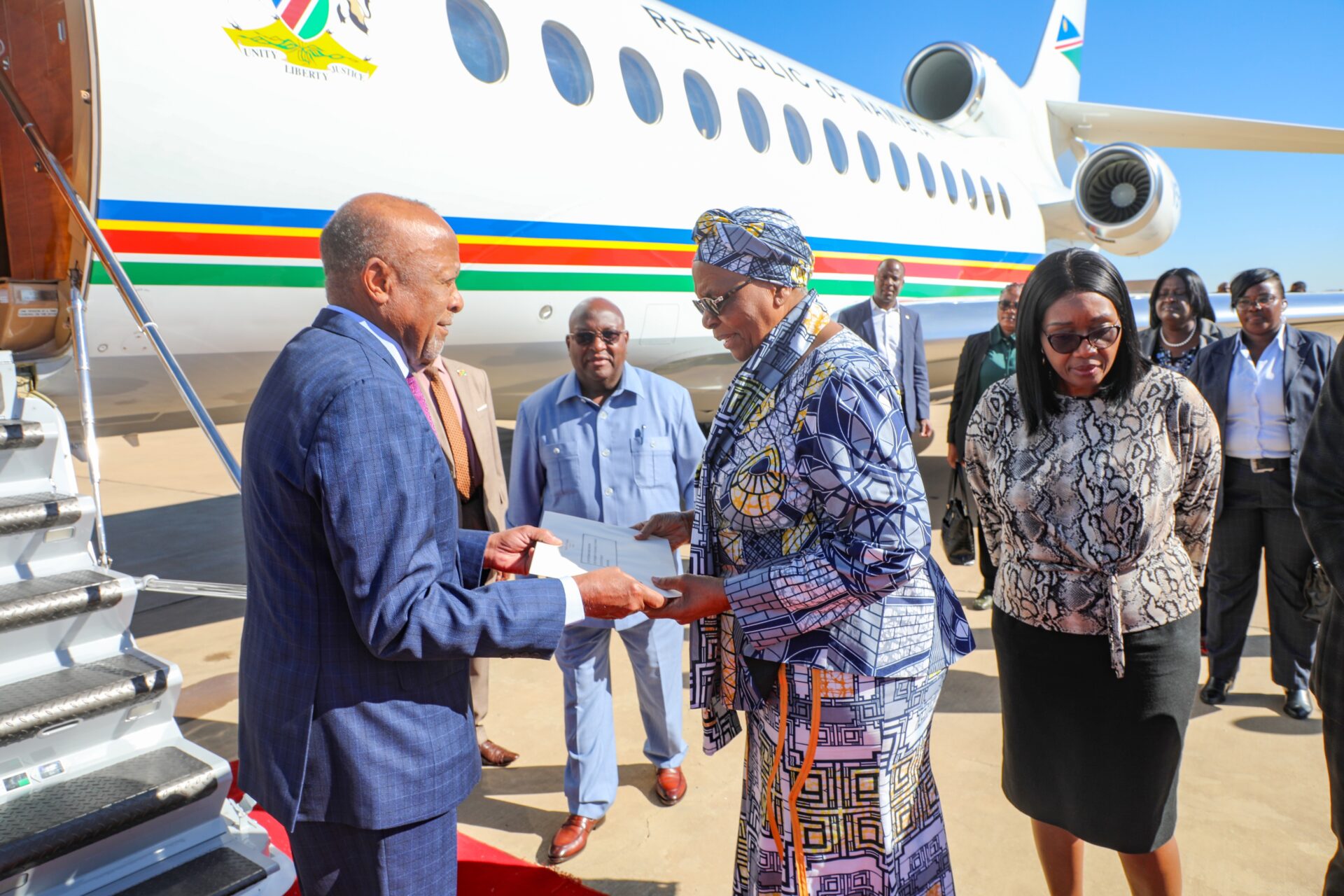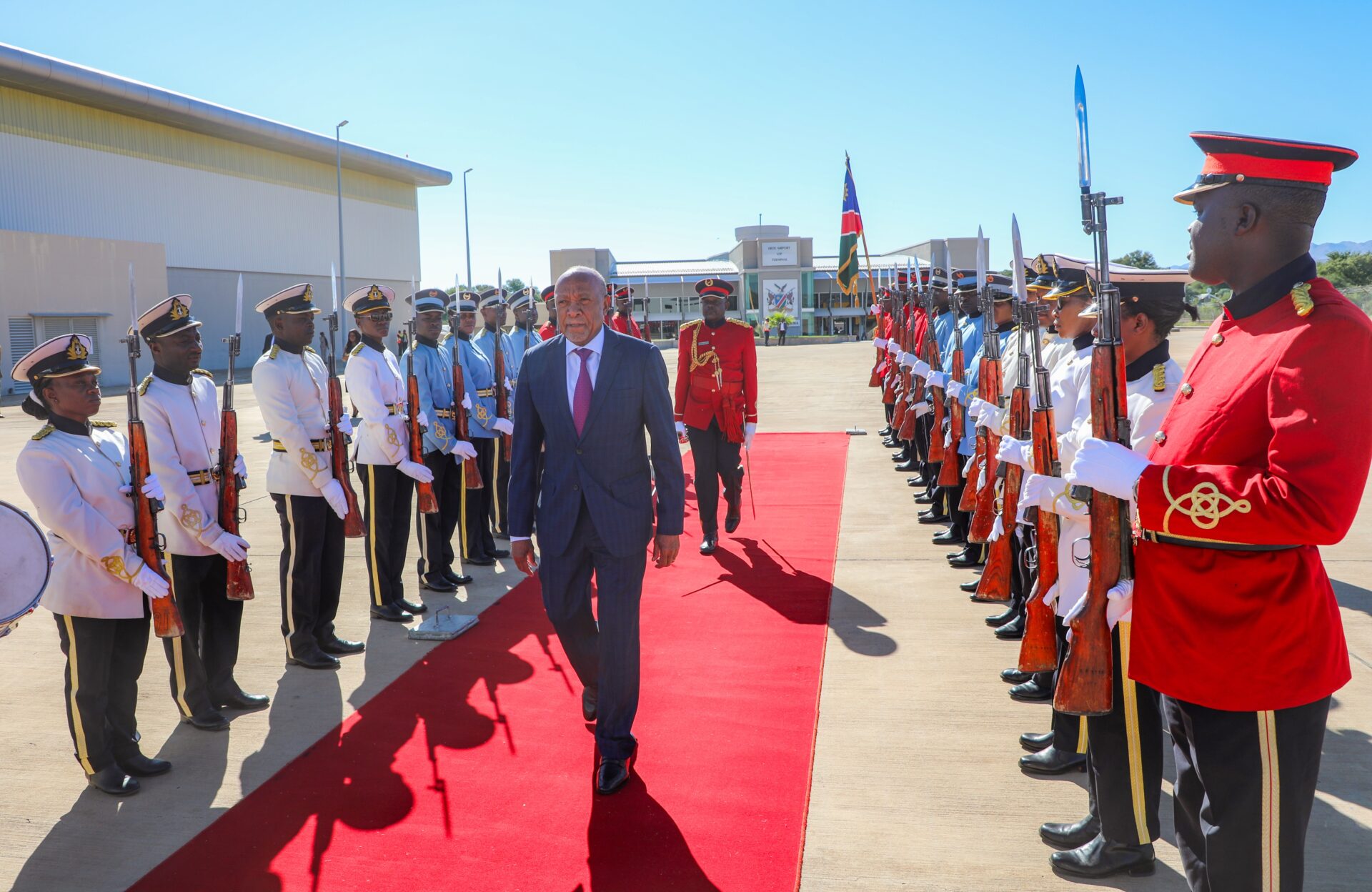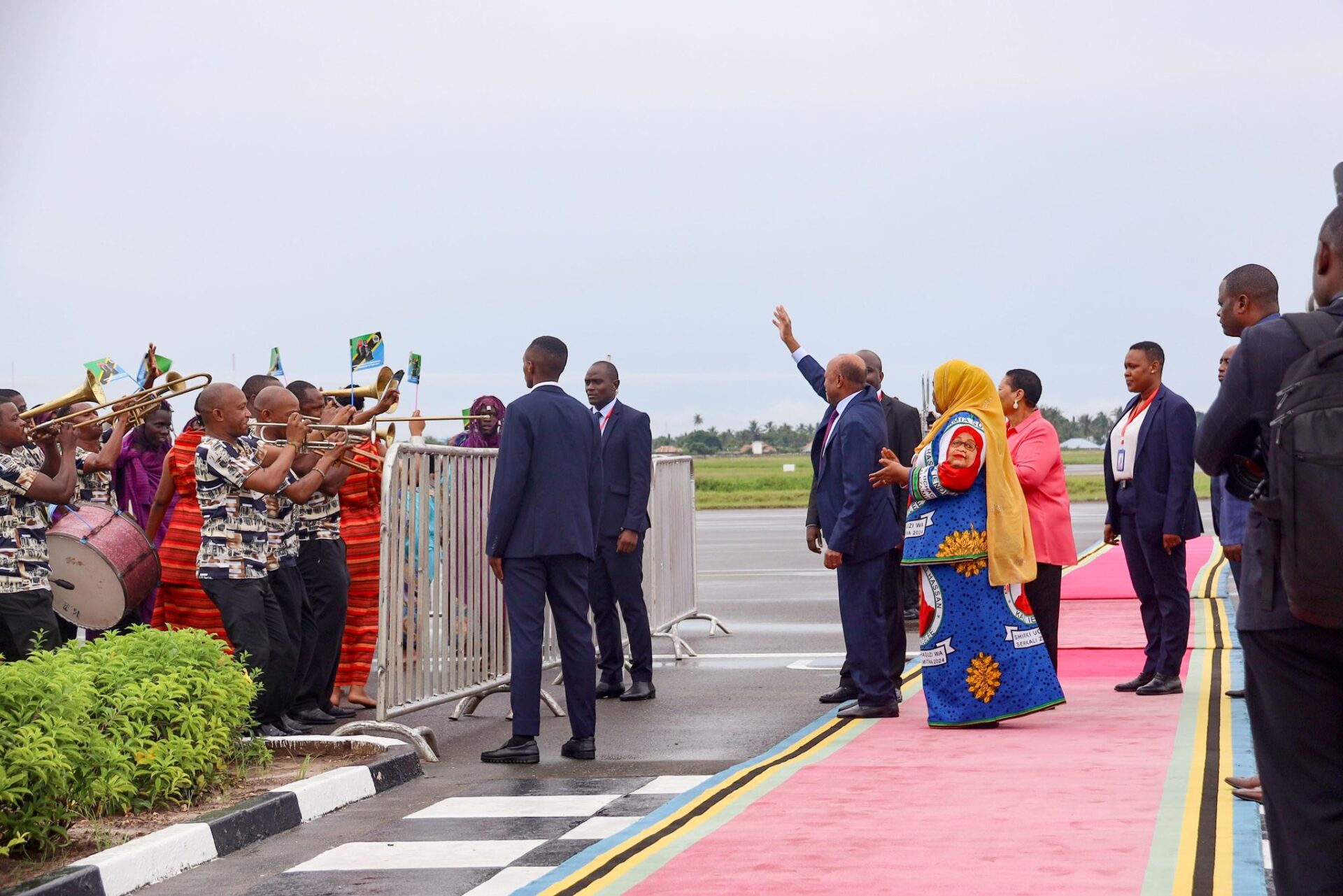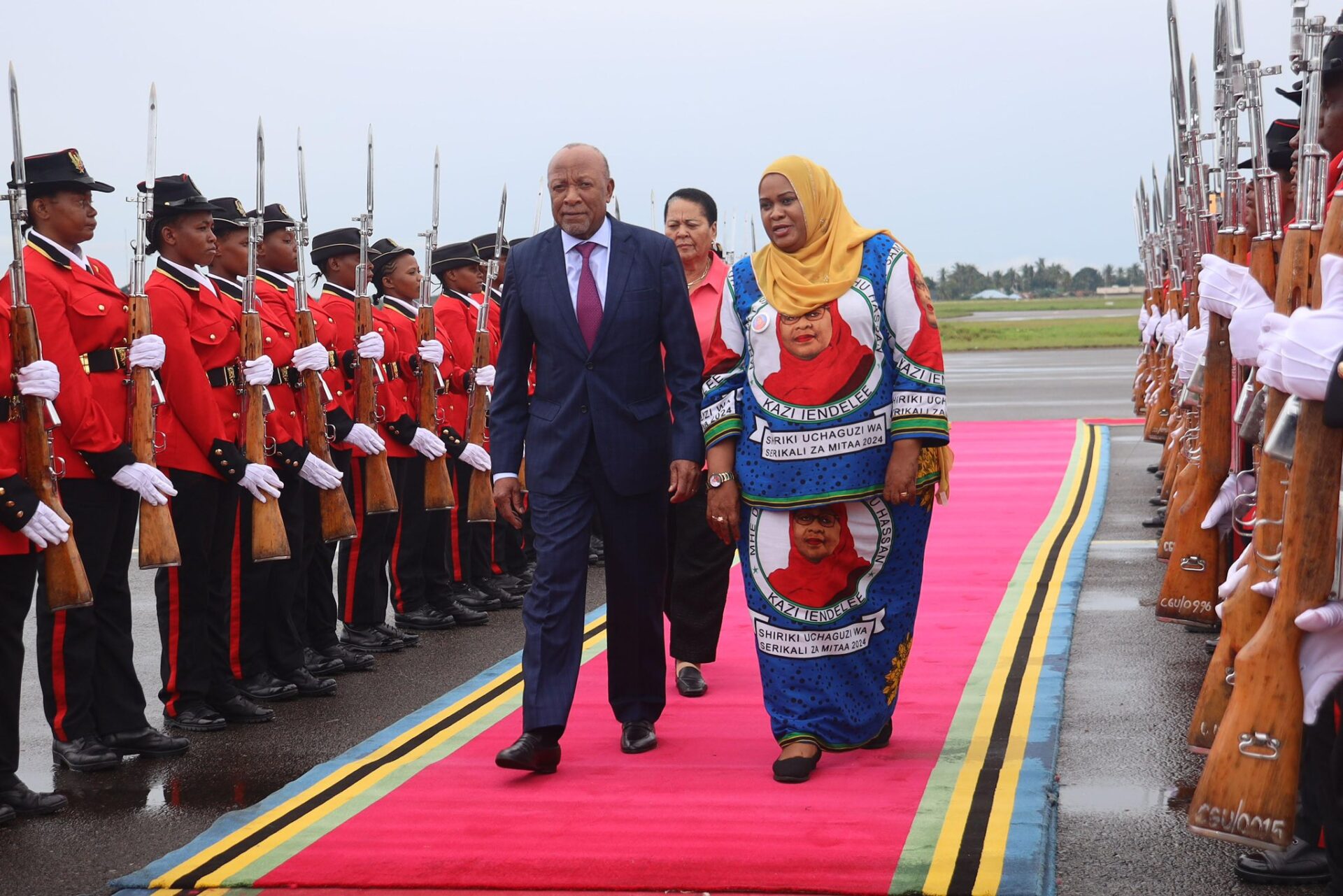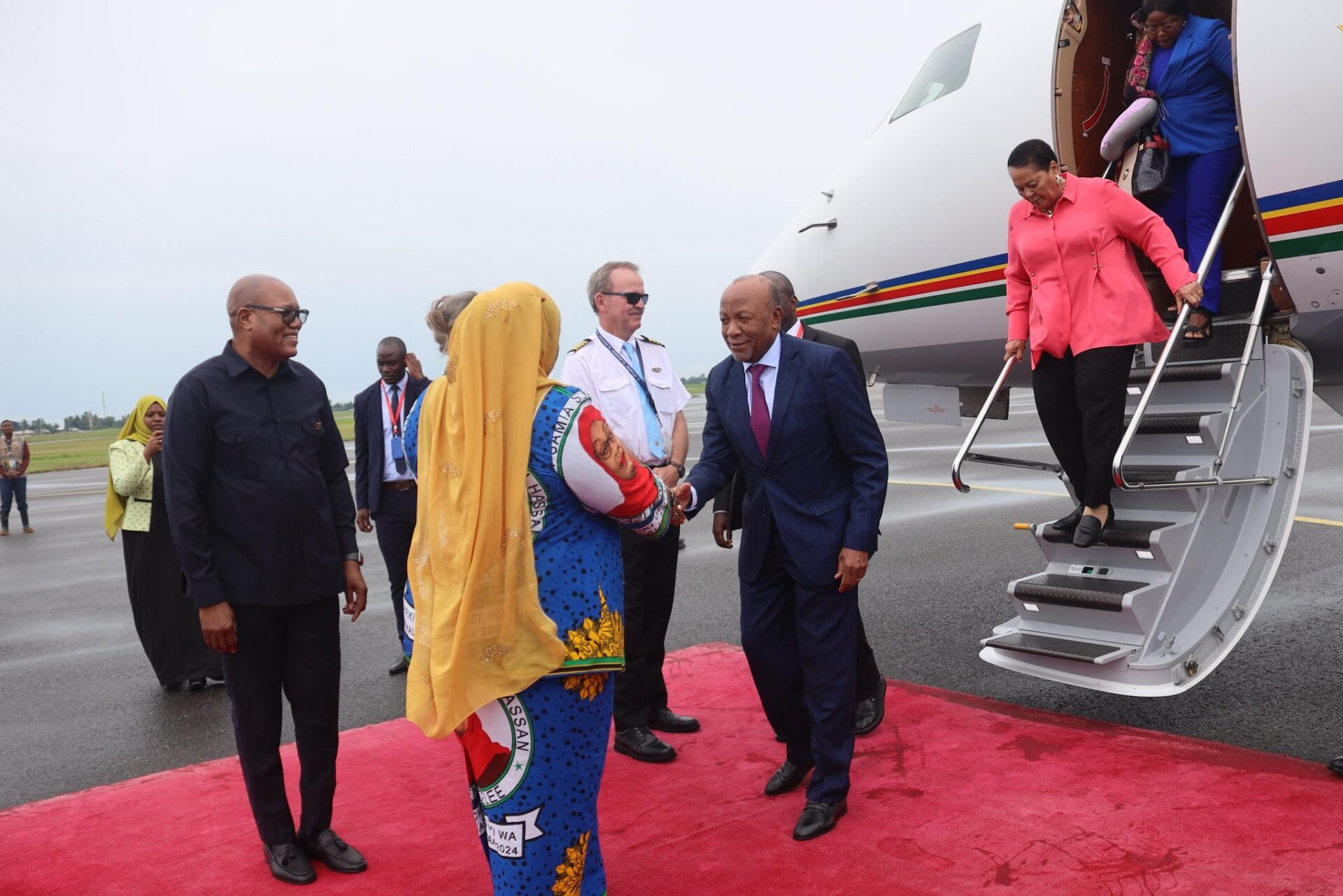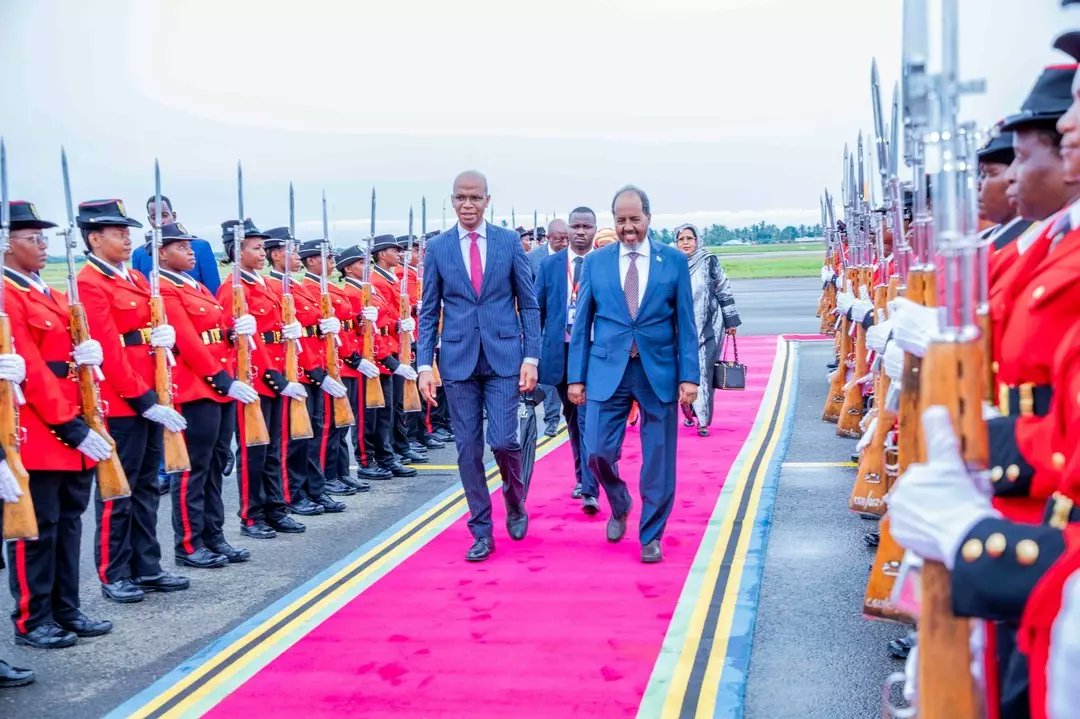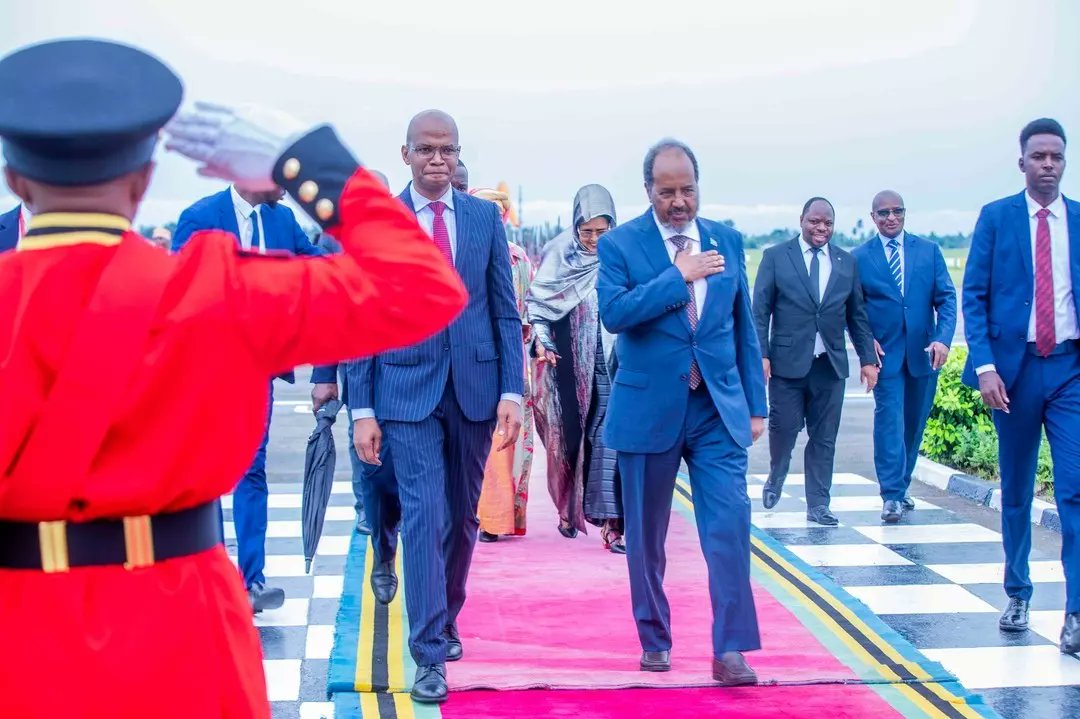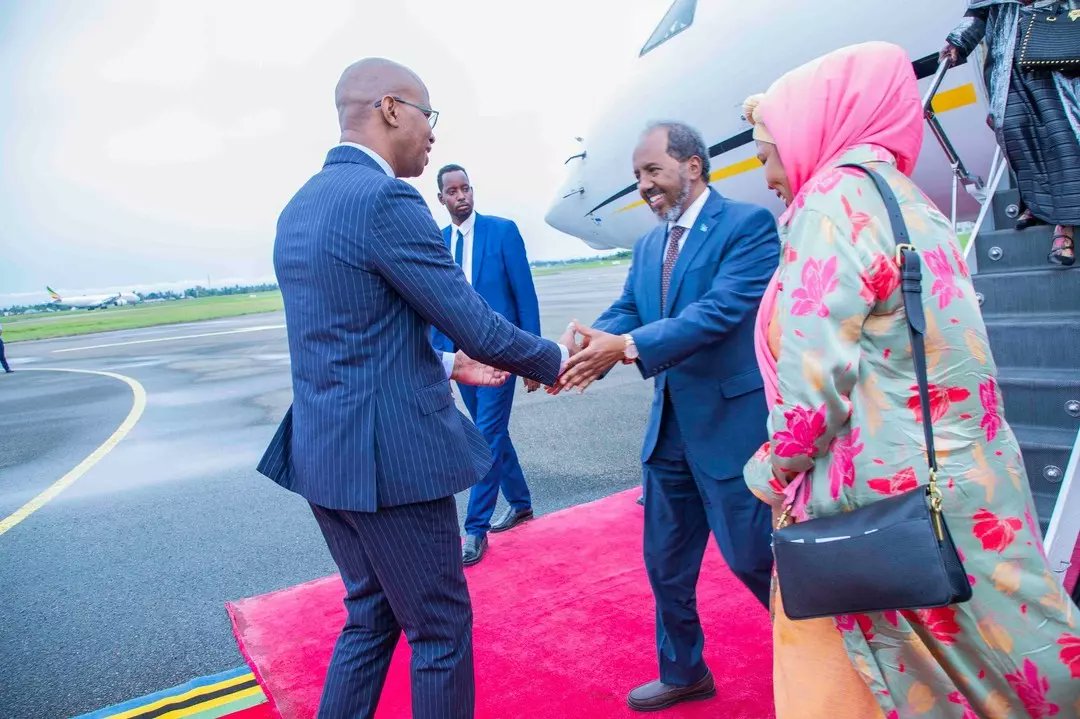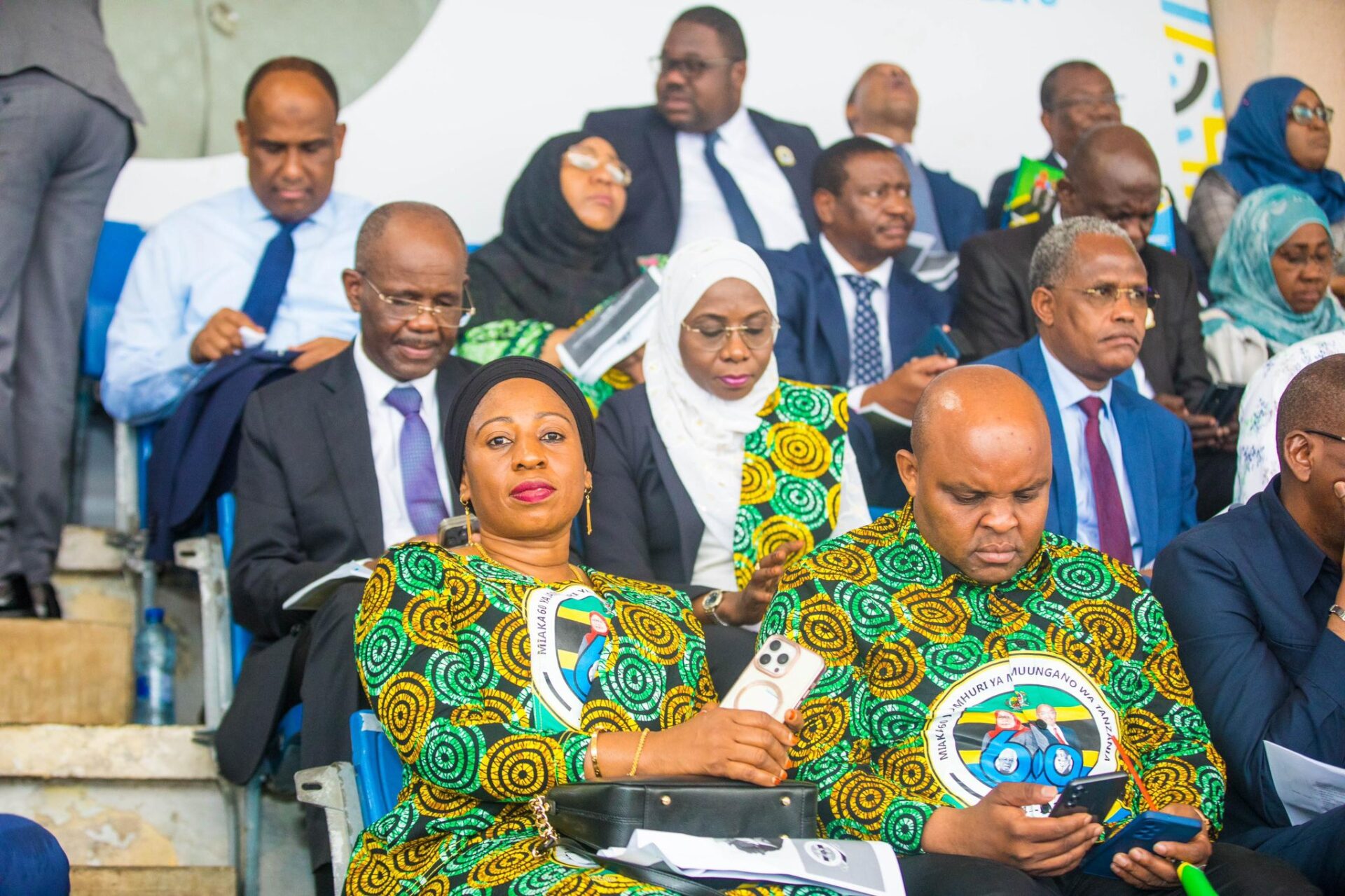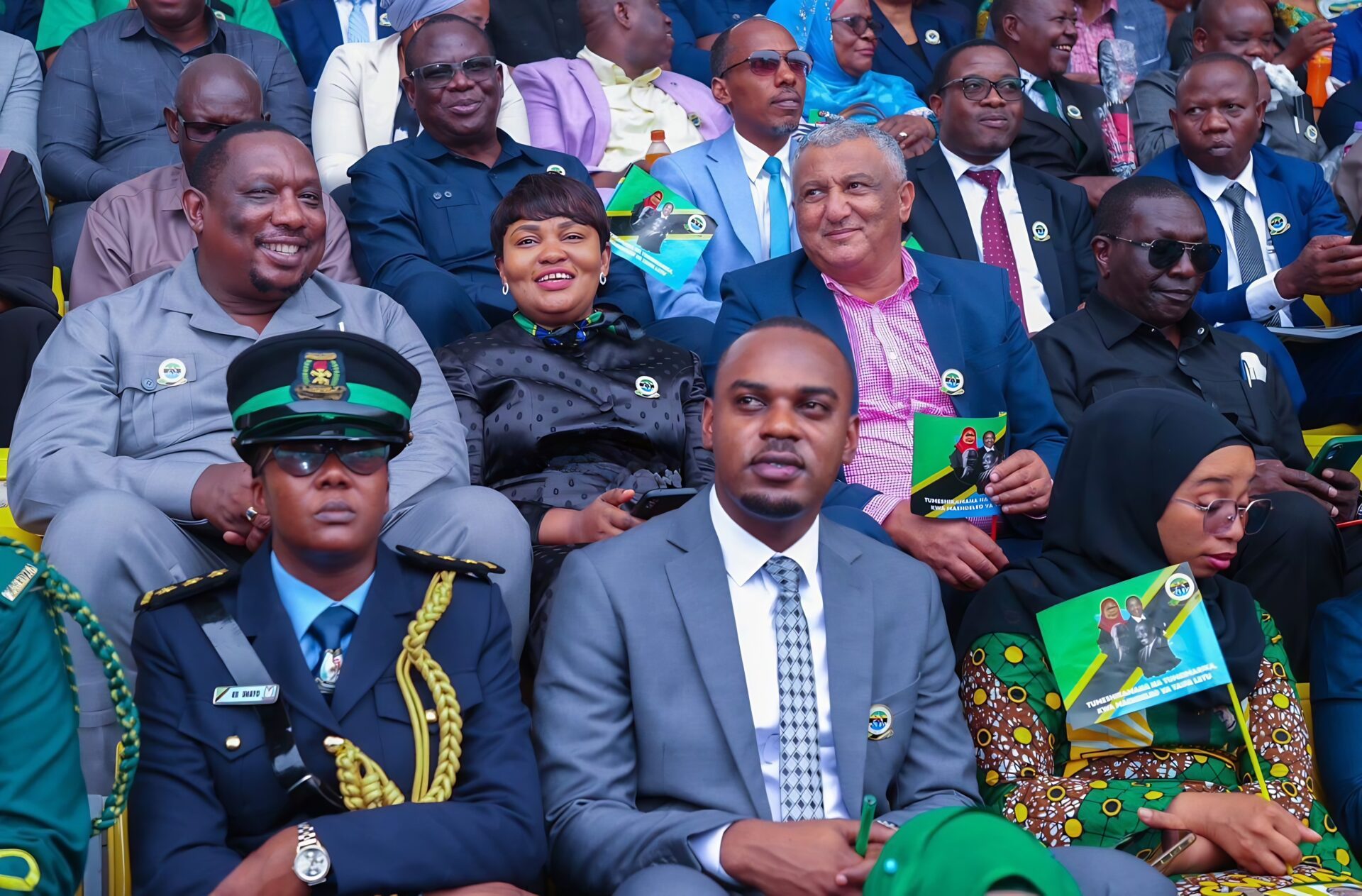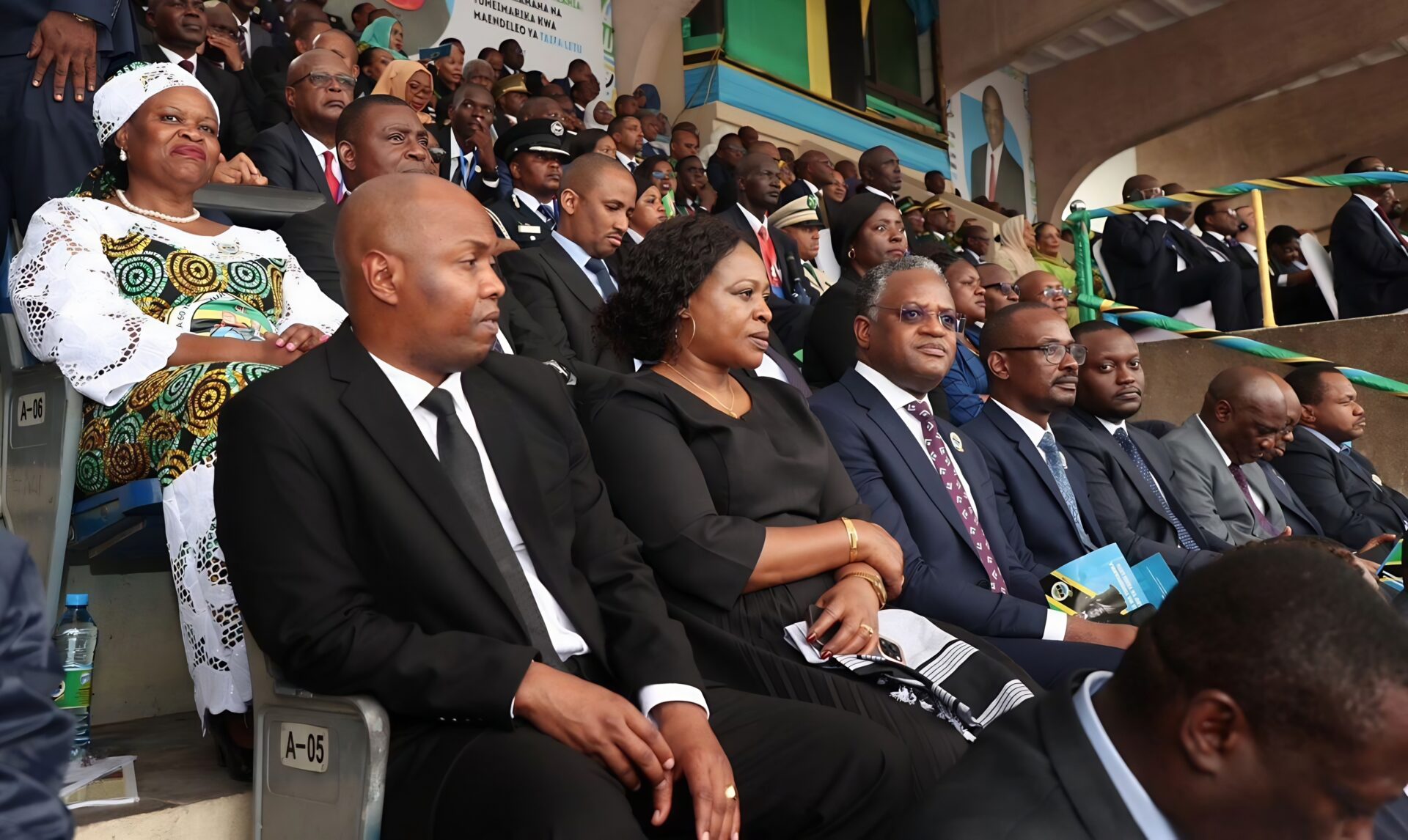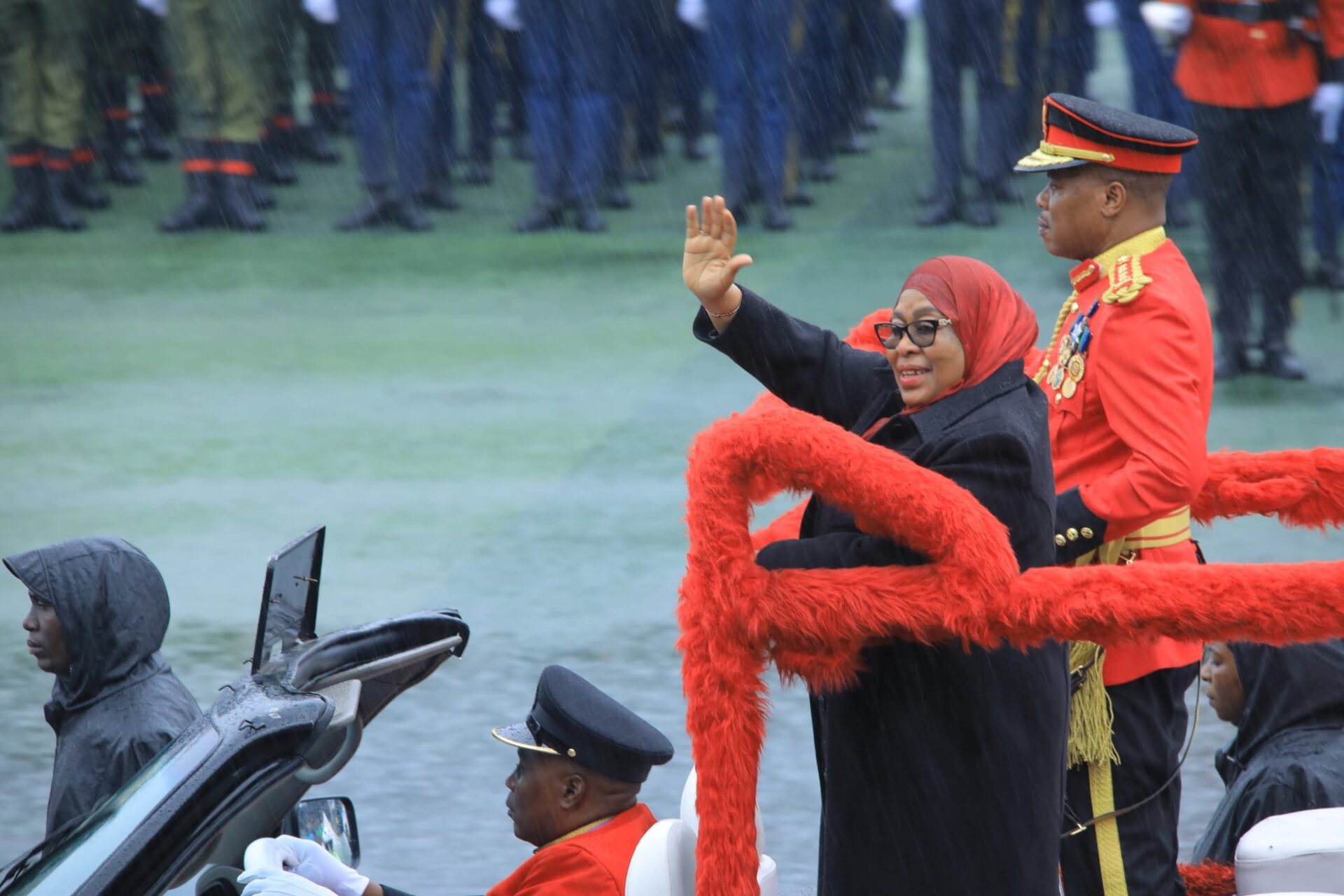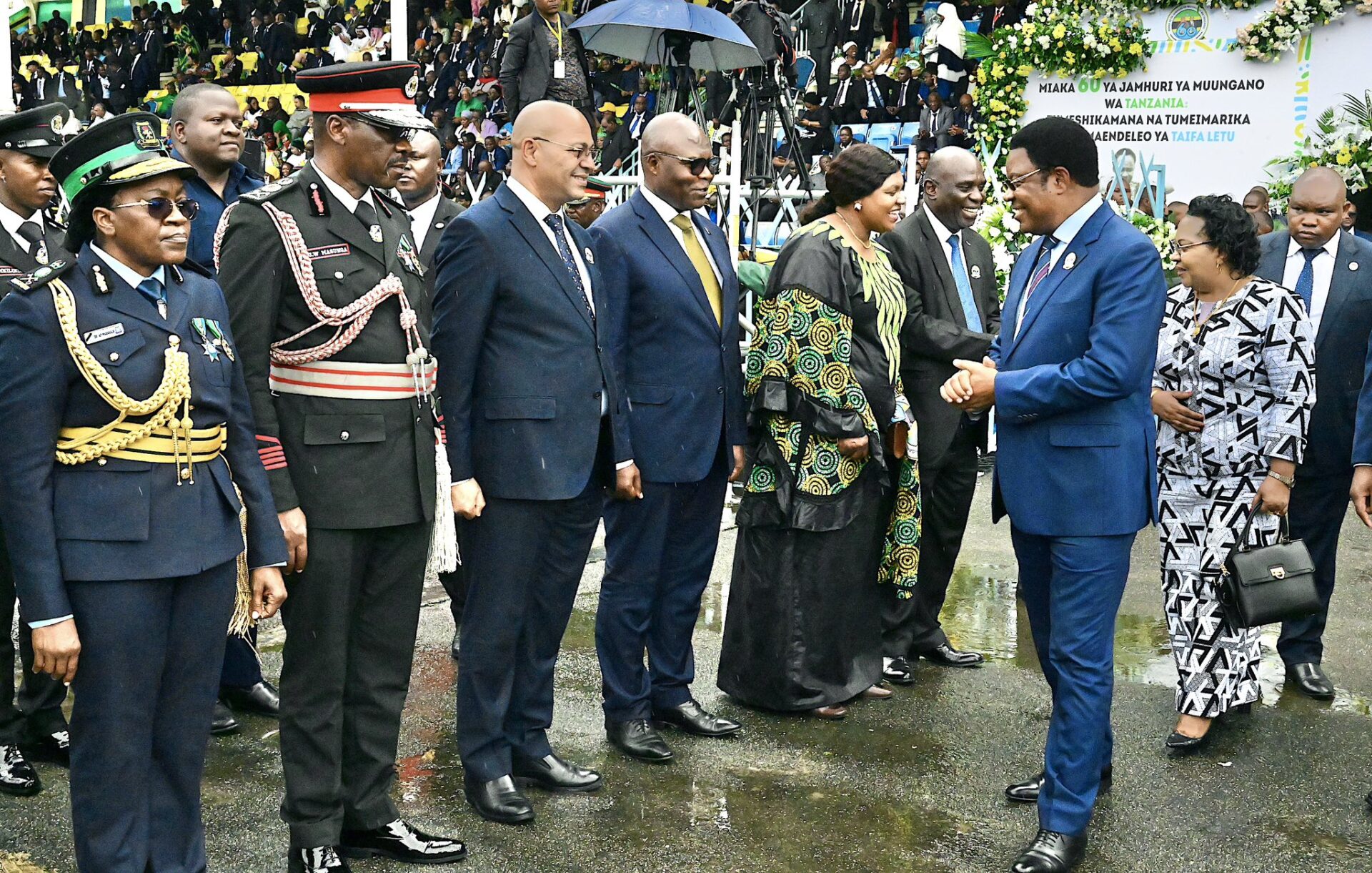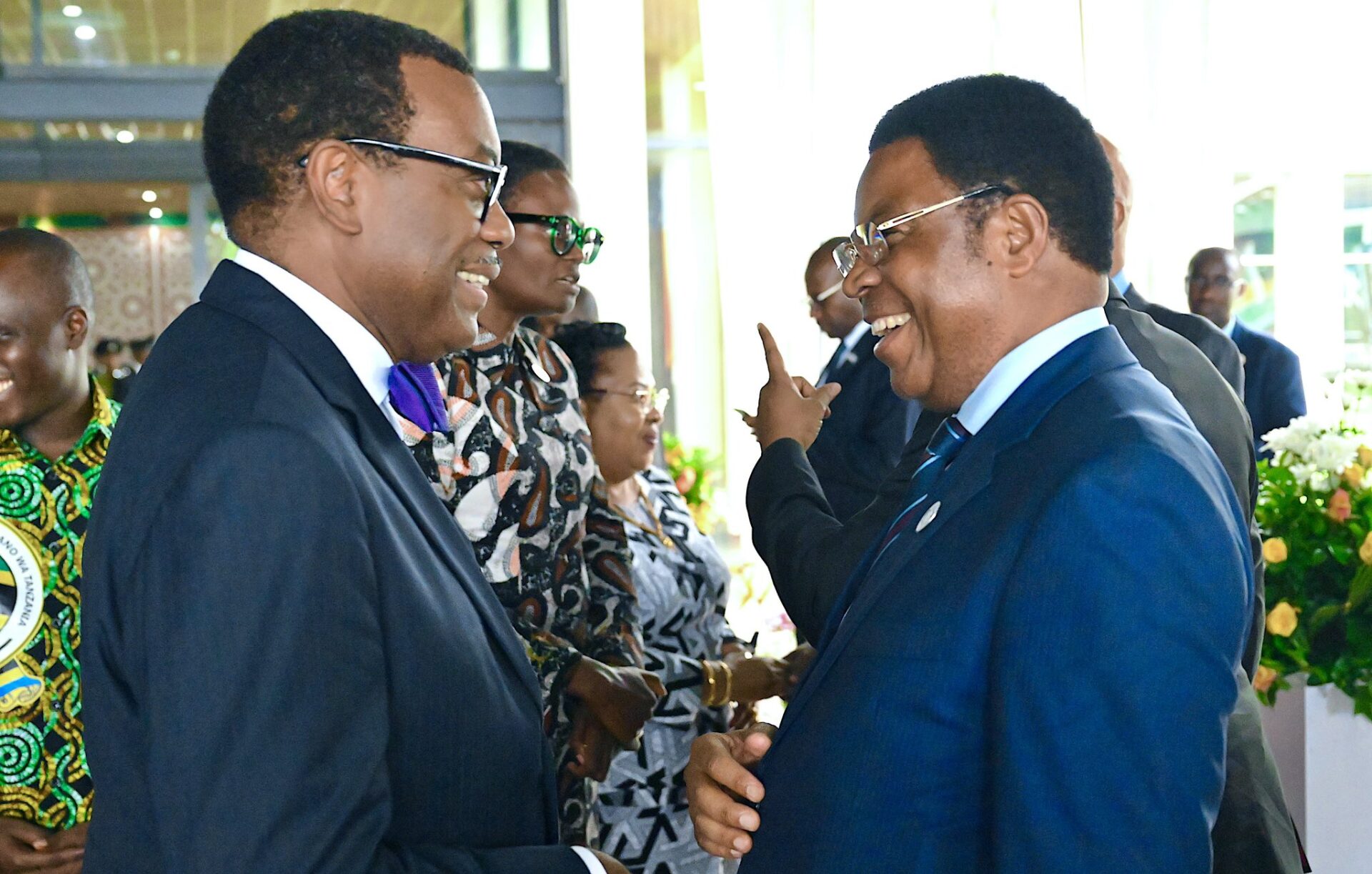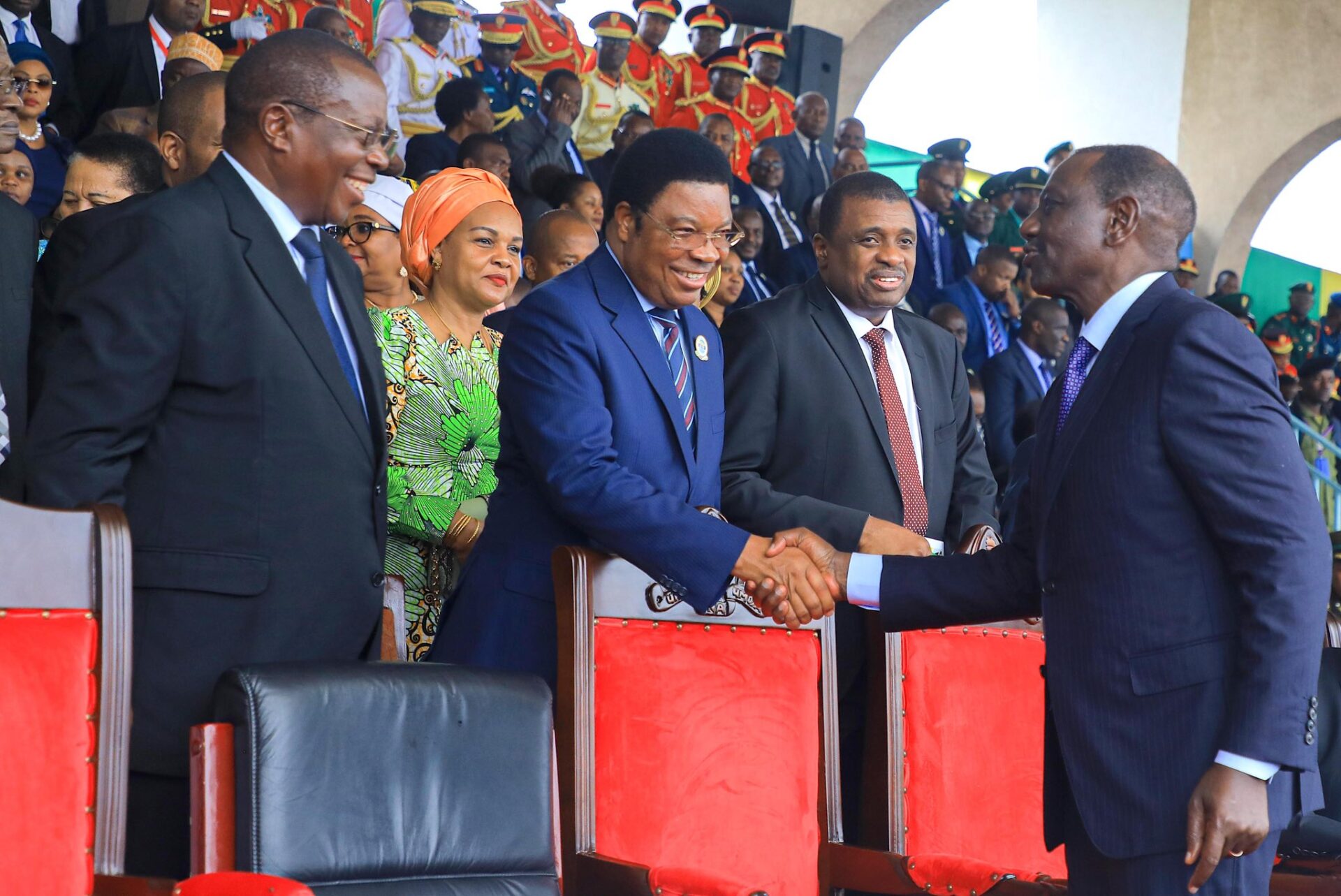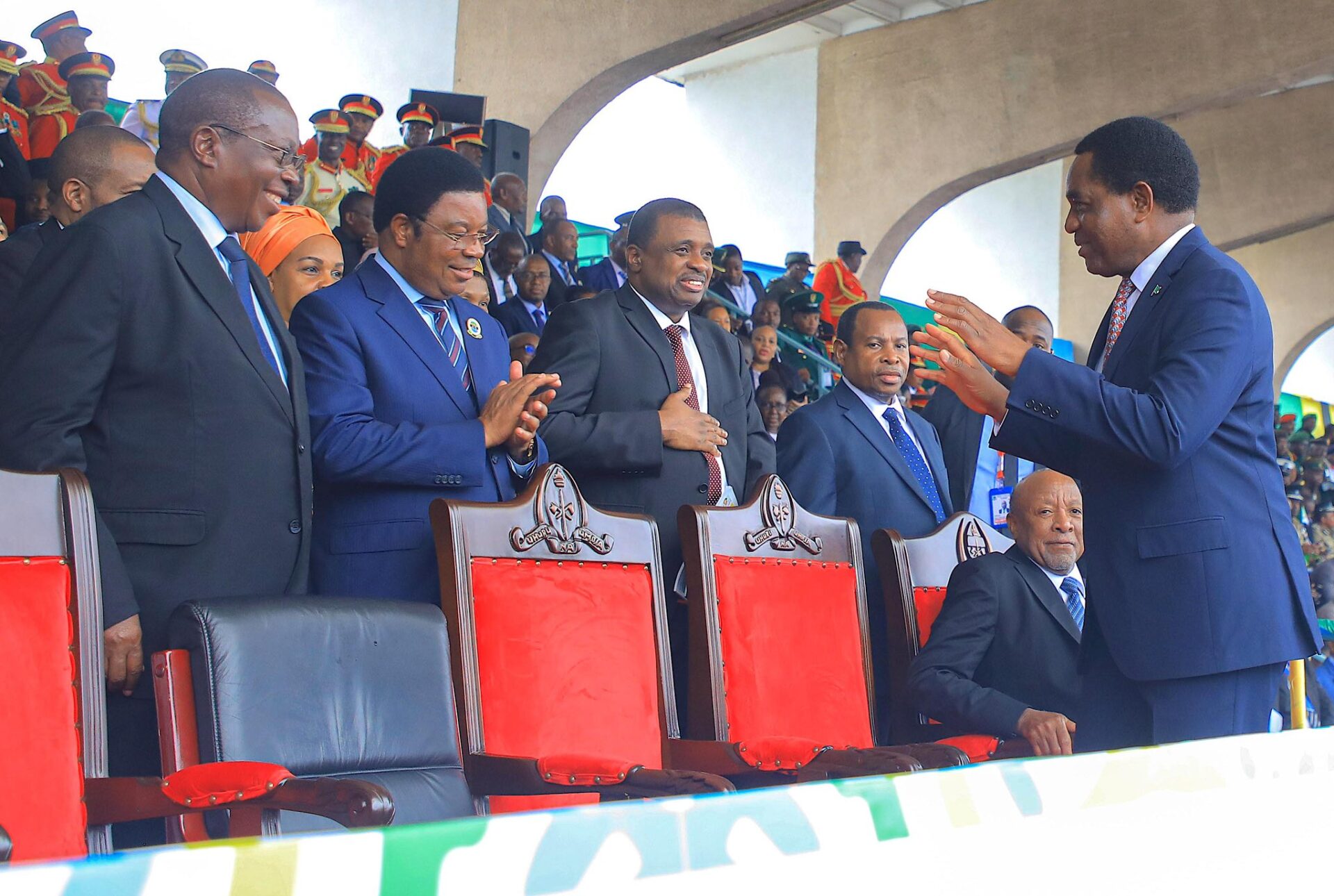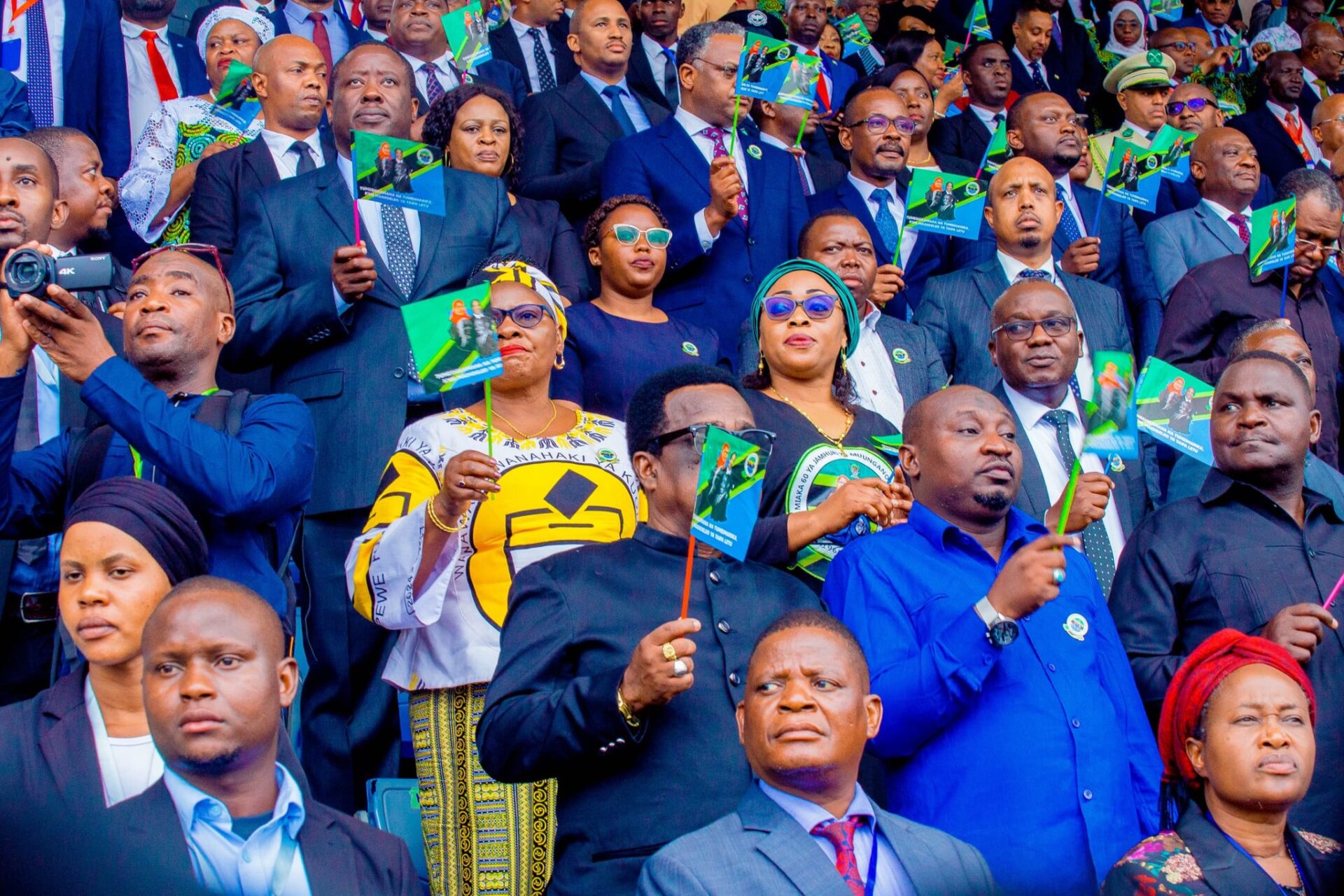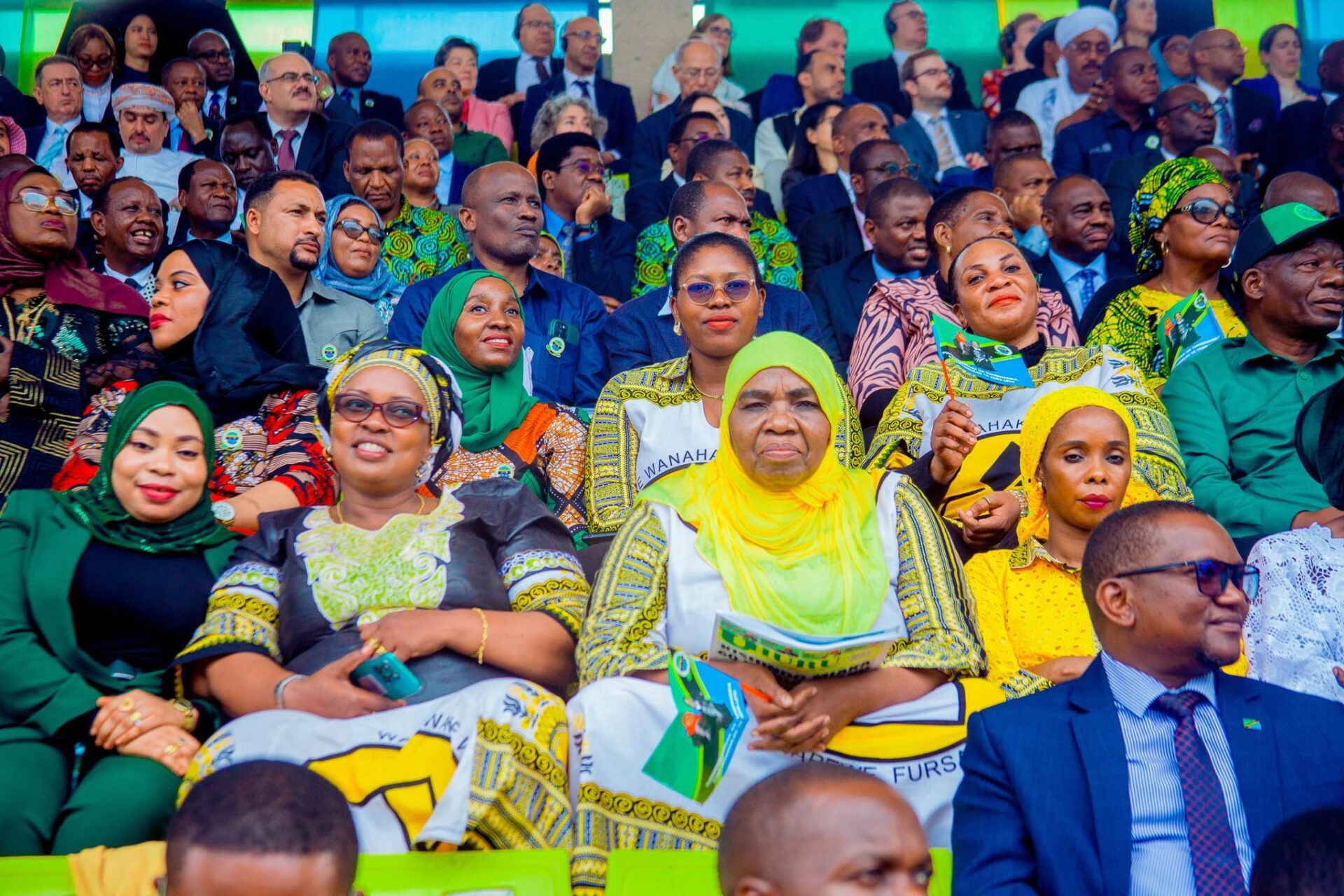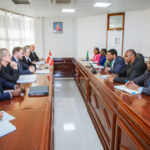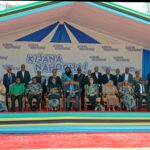As we commemorate 60 years of our Union, we extend our warmest wishes to all Tanzanians. This milestone is a testament to the collective efforts of every individual in our nation, from our esteemed founders to the present day. Together, we have laid the foundation of a resilient Tanzania, built upon the principles of humanity, brotherhood, and the spirit of African socialism. Each phase of leadership has played a pivotal role in shaping our nation, guiding us towards progress and unity.
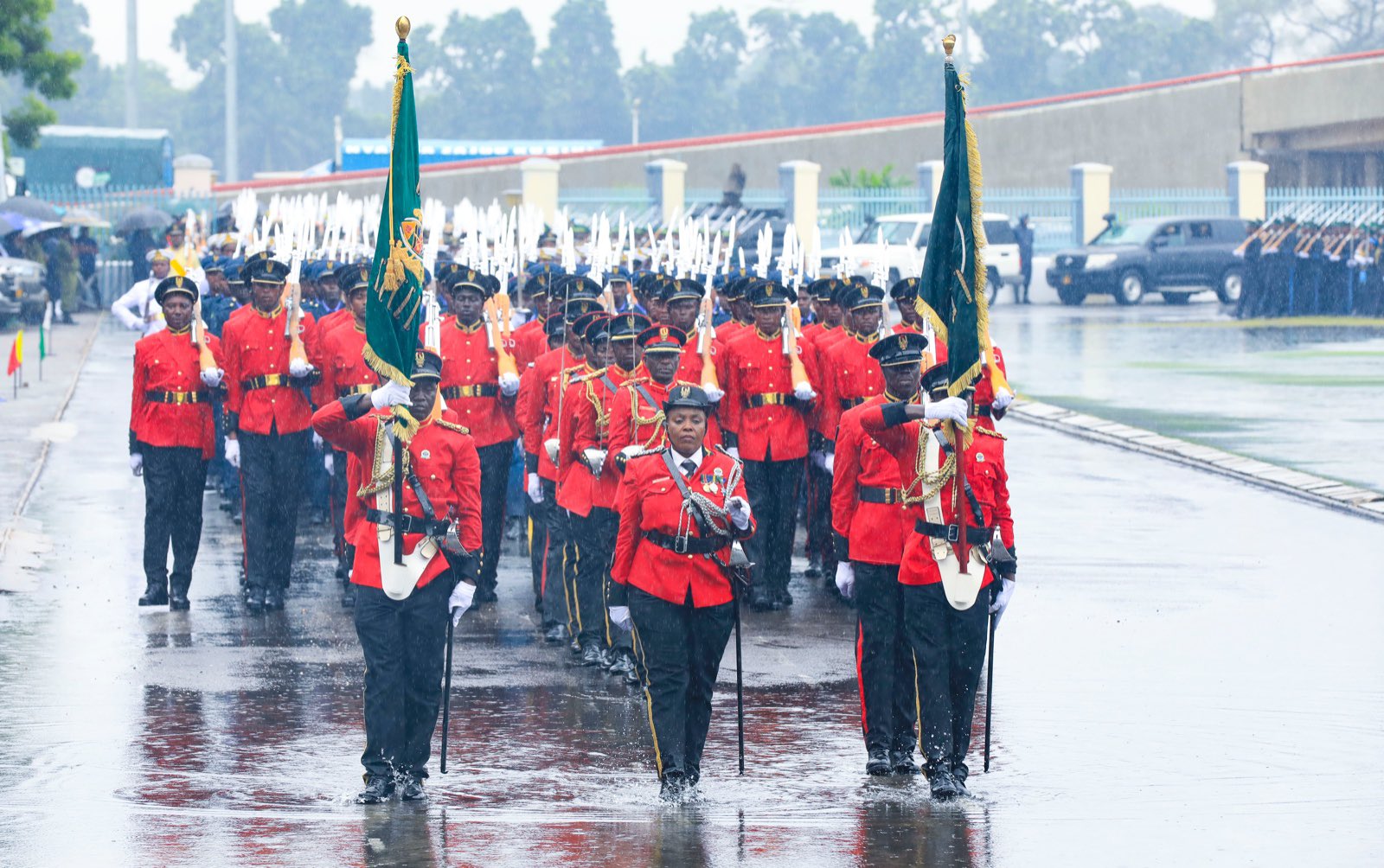
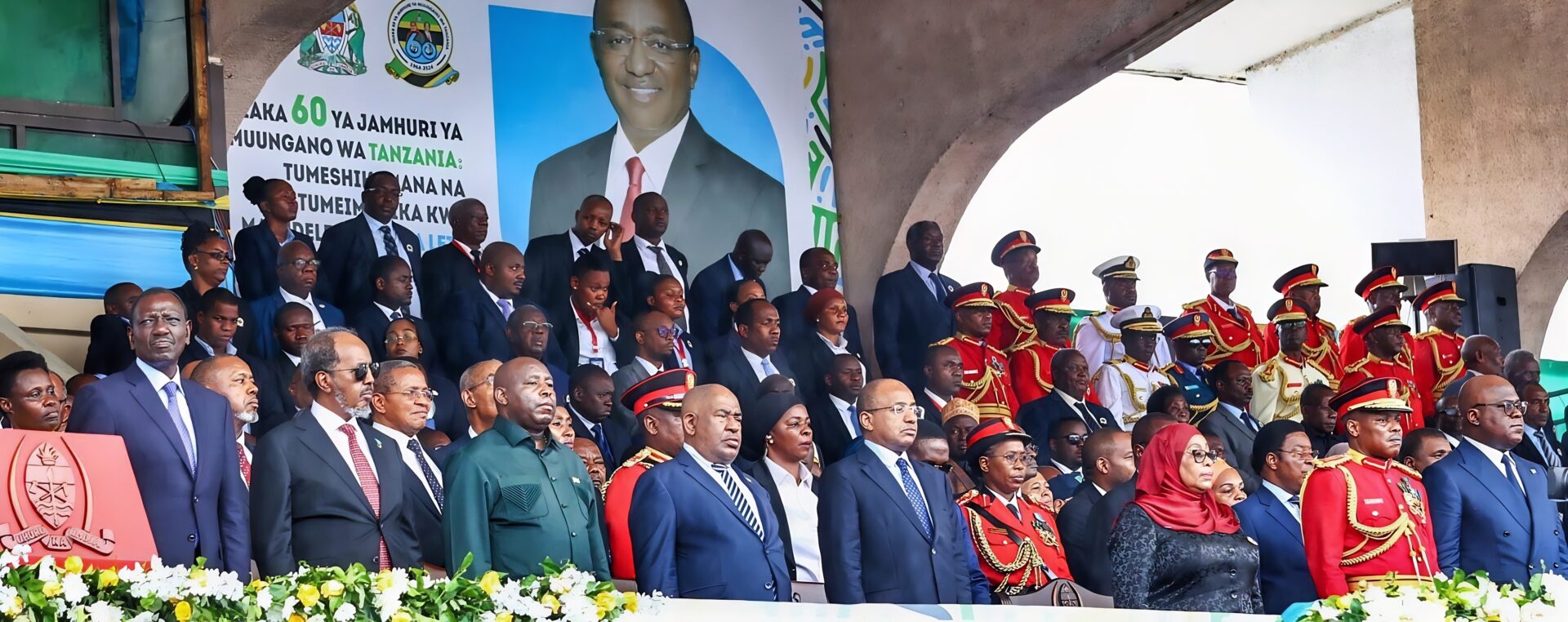

In commemoration of this significant event, we reaffirm our commitment to upholding the values that have guided us thus far. We honour the sacrifices of those who have preceded us and pledge to continue their legacy with pride and reverence.
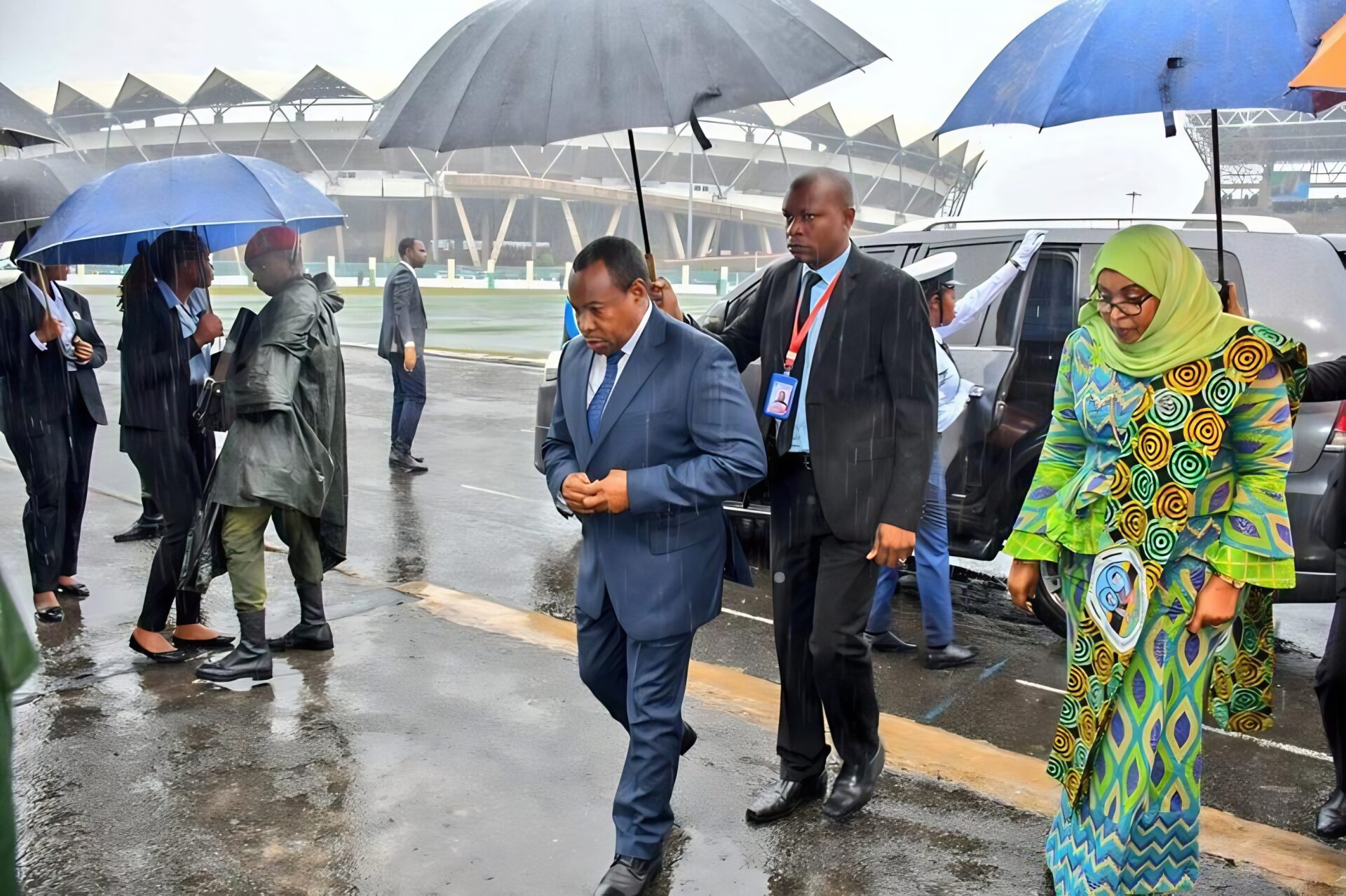
We extend our heartfelt congratulations to all Tanzanians as we celebrate 60 years of our Union. This momentous occasion serves as a reminder of our shared history, our collective strength, and our boundless potential. It is our collective responsibility to continue to uphold the legacy of our Union and to forge a future that is defined by progress, unity, and prosperity.
Embracing Reconciliation, Tolerance, and Reform for a Stronger Nation
As citizens of this distinctive Union, we have every reason to continue to be proud of and protect the legacy that was born of our own decision. Our commitment to upholding the values of reconciliation, tolerance, reform, and rebuilding is crucial in maintaining peace and stability, which are the cornerstones of our nation’s prosperity and strength.
Reconciliation is the foundation upon which we can build a united and harmonious society. The process of reconciliation necessitates an acknowledgement of the past, an addressing of grievances, and a working towards the healing of any remaining wounds. By embracing reconciliation, we can bridge the divides that have separated us and forge a path towards a more inclusive and cohesive nation.
Tolerance is another essential principle that we must uphold in our quest for a better future. It is the acceptance and respect for the diversity that enriches our society. The fostering of a culture of tolerance can create an environment where every individual feels valued and included, regardless of their background or beliefs. This inclusivity is vital in building a strong and resilient nation.
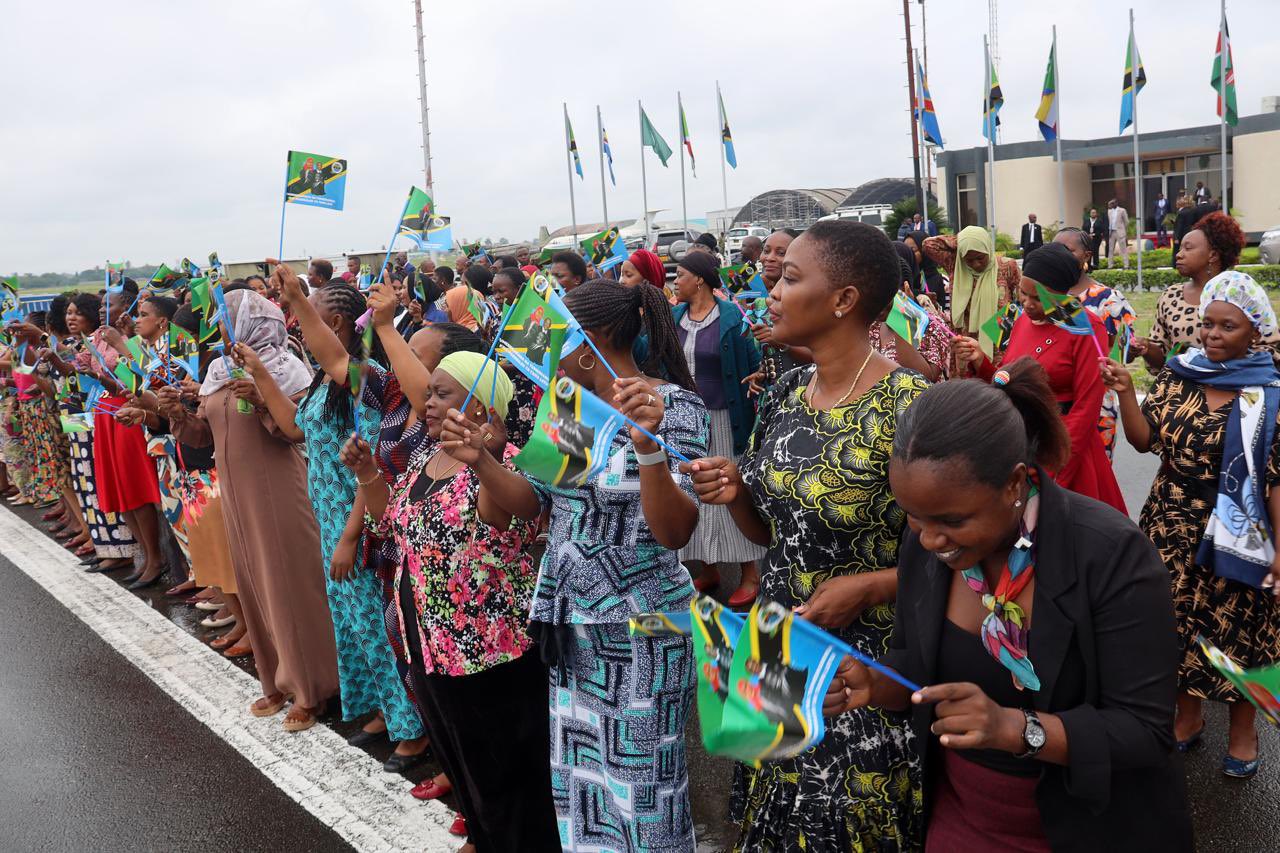
The reconstruction of our country is a collective endeavour that requires vision, determination, and perseverance. It is about revitalising our communities, infrastructure, and institutions to create a better future for generations to come. Through strategic and sustainable rebuilding efforts, we can lay the groundwork for a more prosperous and resilient nation.
In our pursuit of these principles, we must remain steadfast in our commitment to protecting the Union that binds us together. Our unity is our strength, and it is therefore imperative that we safeguard it against any threats that may seek to undermine it. By upholding the values of reconciliation, tolerance, reform, and rebuilding, we can fortify the foundations of our Union and ensure its enduring prosperity.
As we look towards the future, let us embrace the philosophy of reconciliation, tolerance, reform, and rebuilding as guiding principles for our nation. By pursuing this course of action, we can chart a course towards a more peaceful, prosperous, and united Union that we can continue to be proud of for generations to come.
The President of the United Republic of Tanzania, Her Excellency Dr. Samia Suluhu Hassan, was present at the special parade held at Uhuru Stadium to commemorate the 60th anniversary of the United Republic of Tanzania. As the Commander-in-Chief, President Samia Suluhu Hassan addressed the citizens and various leaders during the peak of the 60th Anniversary Celebrations of the Union of Tanganyika and Zanzibar. The event, which took place in Dar es Salaam, was a momentous occasion that brought together leaders and citizens to honour this significant milestone.
In addition to President Samia Suluhu Hassan, the First Vice President of Zanzibar, Hon. Othman Masoud Othman, also joined the gathering at Uhuru Stadium to mark the 60th anniversary of the Union of Tanganyika and Zanzibar. The presence of these esteemed leaders, in addition to the participation of citizens, contributed to the grandeur of the event, underscoring the unity and pride felt by all in celebrating this historic occasion.
The 60th anniversary of the Union of Tanganyika and Zanzibar holds immense significance for the people of Tanzania, symbolising the strength of unity and the progress achieved over the past six decades. The commemorative event at Uhuru Stadium served as a platform for reflection, celebration, and a renewed commitment to the values and principles that have shaped the nation.
President Samia Suluhu Hassan’s inspection of the special parade demonstrated her dedication to honouring the country’s history and acknowledging the contributions of its citizens. Her address to the citizens and leaders further emphasised the importance of unity, progress, and the shared vision for a prosperous future for Tanzania.
The presence of the First Vice President of Zanzibar, Hon. Othman Masoud Othman, alongside other leaders and citizens, highlighted the inclusive nature of the celebrations, showcasing the unity and harmony that define the Union of Tanganyika and Zanzibar.
The 60th Anniversary Celebrations of the Union of Tanganyika and Zanzibar at Uhuru Stadium in Dar es Salaam were a testament to the enduring spirit of the Tanzanian people. The event provided an opportunity for reflection on the achievements of the past and a renewed sense of purpose as the nation looks ahead to the future.
Honouring the 60th Anniversary of the Union: A Spectacular Parade Organized by the Tanzania Peoples Army
The 60th anniversary of the Union was celebrated with great ceremony and splendour as the Tanzania Peoples Army (JWTZ) organised a magnificent honour parade. The parade, a symbol of pride and unity, passed in front of the esteemed President of the United Republic of Tanzania and the Commander-in-Chief, Her Excellency President Samia Suluhu Hassan, along with various leaders, marking the culmination of the anniversary celebrations.
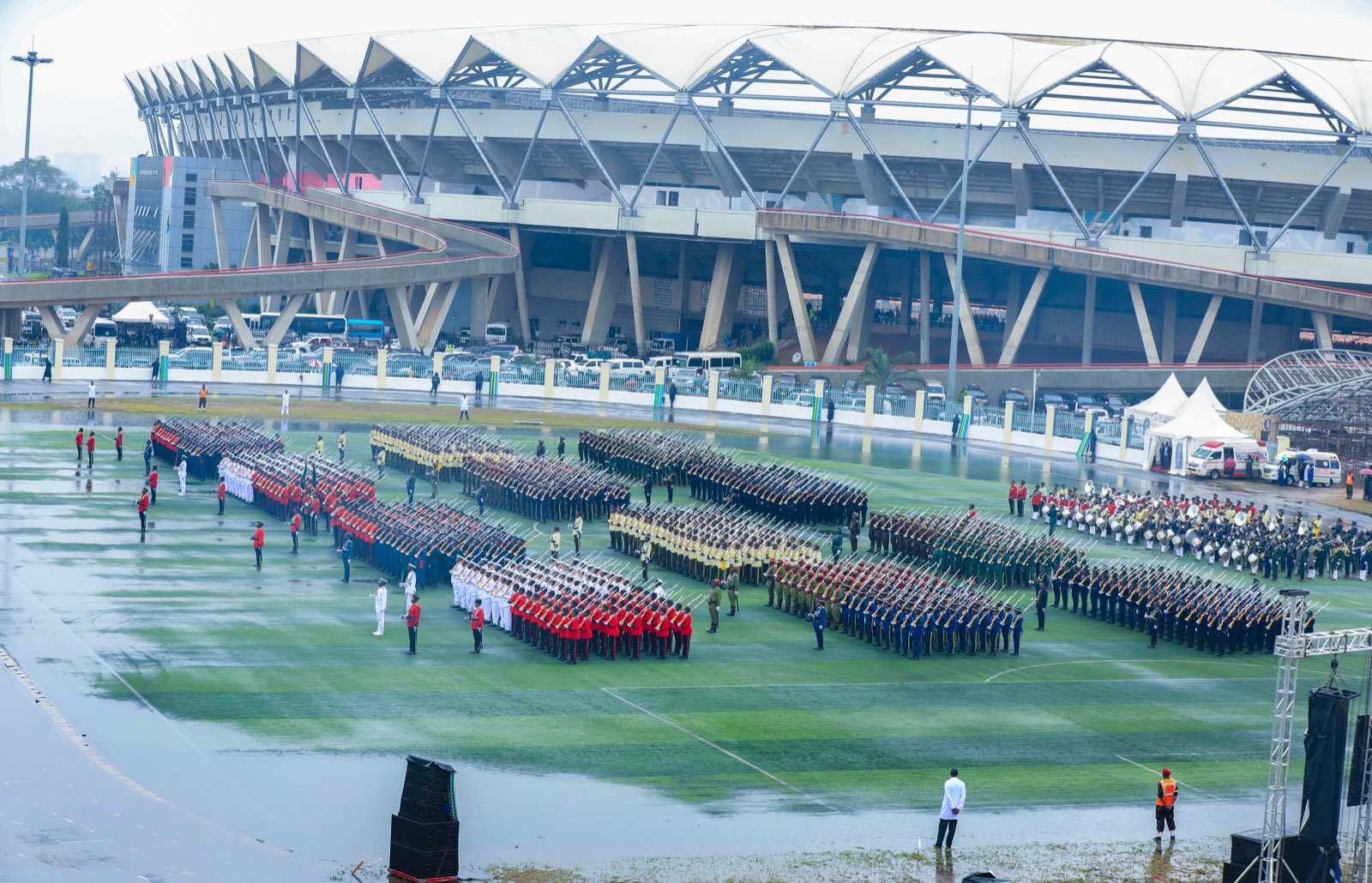

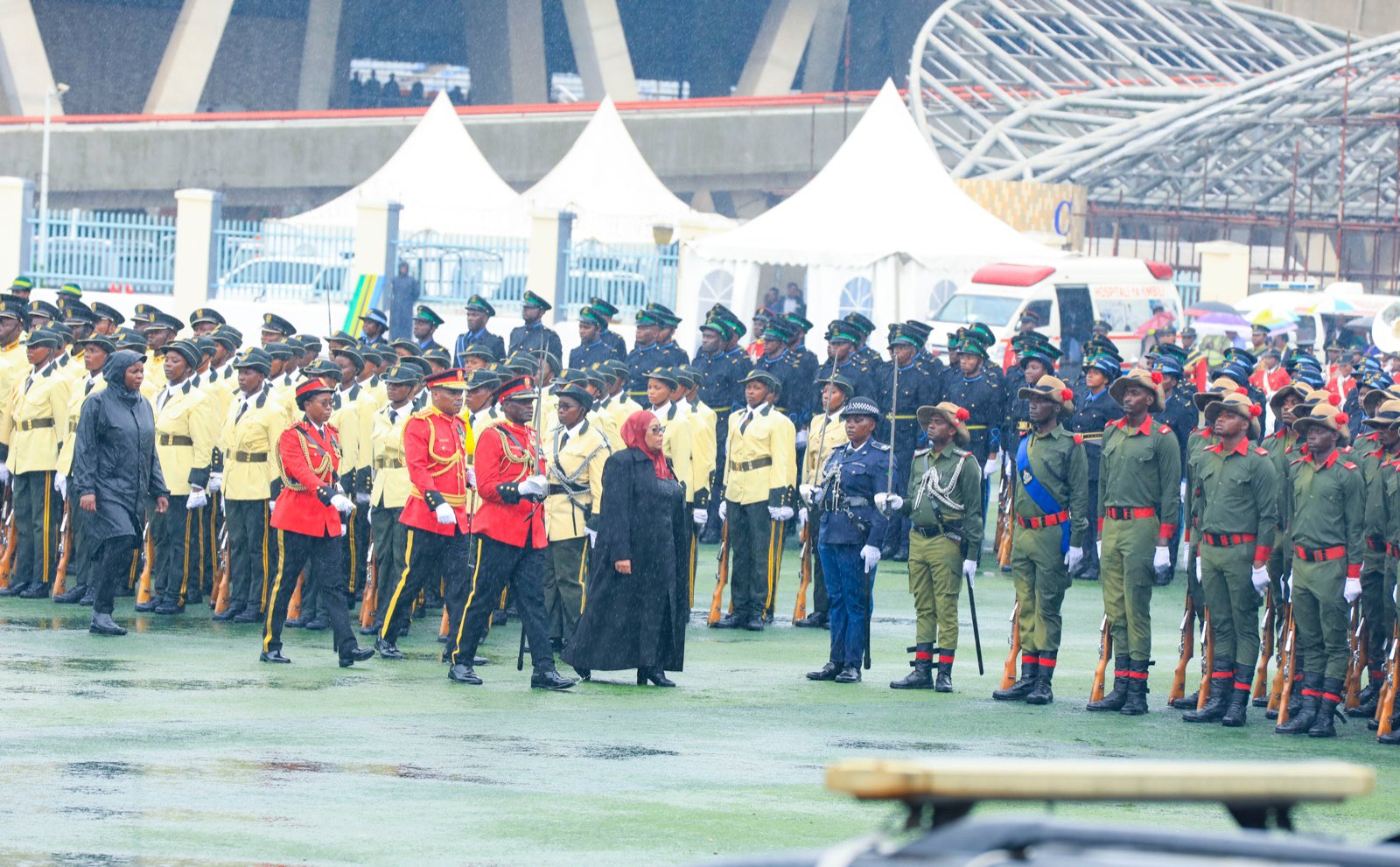
The leaders who attended the event conveyed a message of solidarity and support for the armed forces, acknowledging their pivotal role in safeguarding the nation’s security and upholding its values.
The 60th Anniversary celebrations demonstrated the resilience and fortitude of the Tanzanian people, who have overcome numerous challenges and adversities to emerge as a beacon of hope and progress in the region.
The honour parade was an appropriate tribute to the spirit of unity and patriotism that defines Tanzania, serving as a reminder of the collective strength and determination of its people. As the parade concluded with a display of a gun salute and a rendition of the national anthem, the atmosphere was charged with emotion and pride, encapsulating the essence of the occasion.
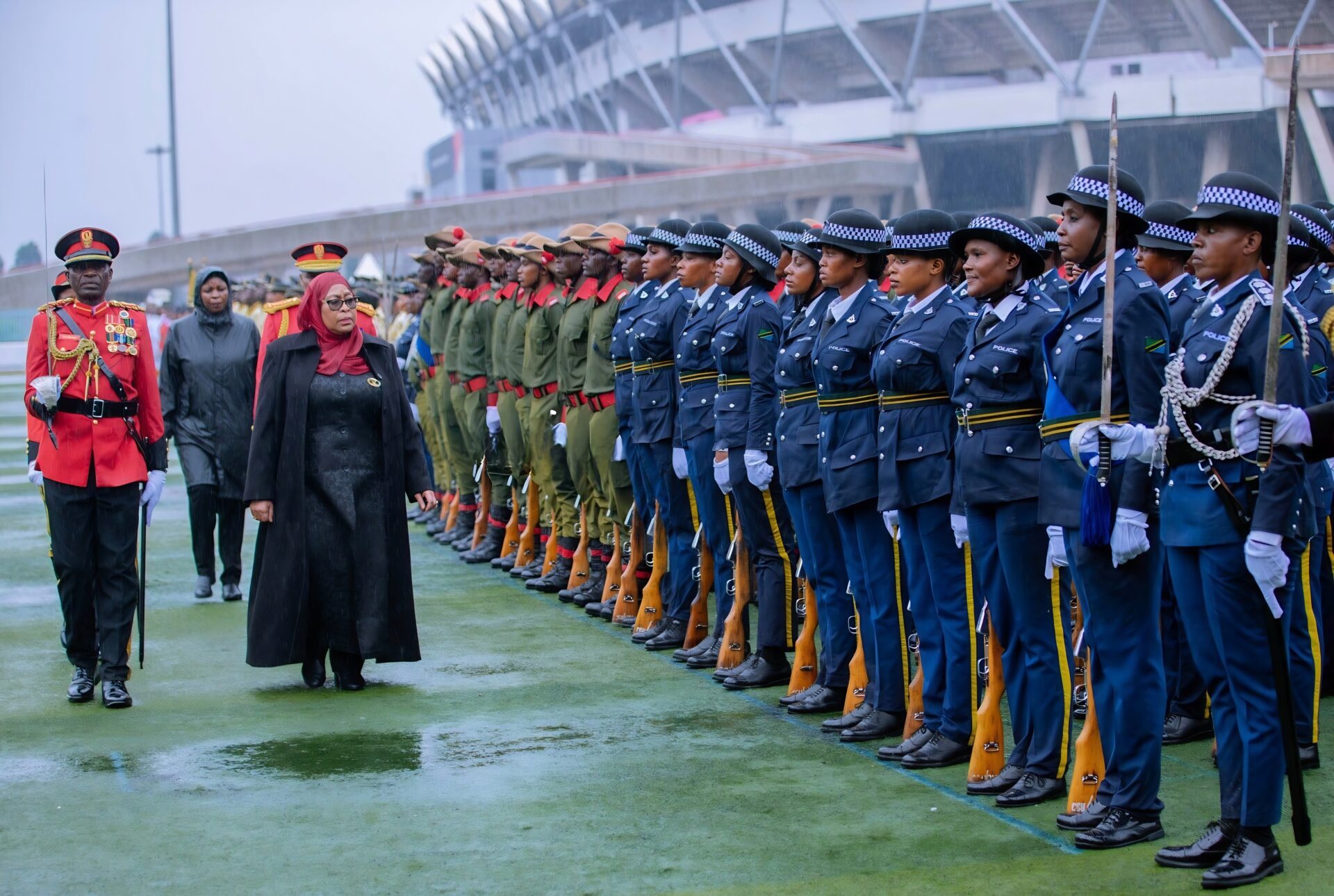
The Union of Tanganyika and Zanzibar: A Historic Milestone in the Formation of The United Republic of Tanzania
On 26 April 1964, a pivotal event occurred in East Africa that irrevocably altered the trajectory of history. Tanganyika and Zanzibar, two distinct regions with a rich cultural and historical heritage, merged to form the United Republic of Tanzania. This momentous union was formalised and ratified by the Act of 1964 of the Parliament of Tanzania, known as the Union of Tanganyika and Zanzibar Act of 1964. The people of Tanganyika and Zanzibar shared striking similarities in their cultural and historical experiences. This was evident in a number of areas, including language, traditional dances and architectural styles, which exhibited a strong sense of cultural unity. The Kiswahili language, in particular, served as a unifying force, bridging the gap between the two regions and fostering a sense of shared identity. Additionally, both regions were engaged in similar economic activities, particularly in trade, both before and after colonialism. This shared economic history further strengthened the bond between the two African states.
Colonial domination had a profound impact on both Tanganyika and Zanzibar, as they grappled with similar challenges and struggles. The legacy of colonialism left a lasting imprint on the social, political, and economic fabric of these regions, shaping their collective identity and shared experiences. Furthermore, the need for security and defence was paramount, as both countries sought to protect themselves from external threats and potential invasions. The strategic nature and location of these two countries made it imperative to establish strong security measures to safeguard their peace and stability.
The consolidation of cooperation and integration between the people of Tanganyika and Zanzibar was a pivotal objective of the union. By coming together, these two regions aimed to foster a sense of unity and solidarity, transcending their historical differences and forging a common destiny. This spirit of cooperation laid the foundation for the formation of The United Republic of Tanzania, marking a new chapter in the history of East Africa.
One of the primary motivations behind the union was to prevent the expansion of capitalism into Zanzibar. The leaders of the union were aware of the potential threat posed by unchecked capitalist influence and sought to safeguard the economic and social fabric of the region. By joining forces, Tanganyika and Zanzibar aimed to preserve their cultural heritage and traditional values, while charting a path towards sustainable development and progress.
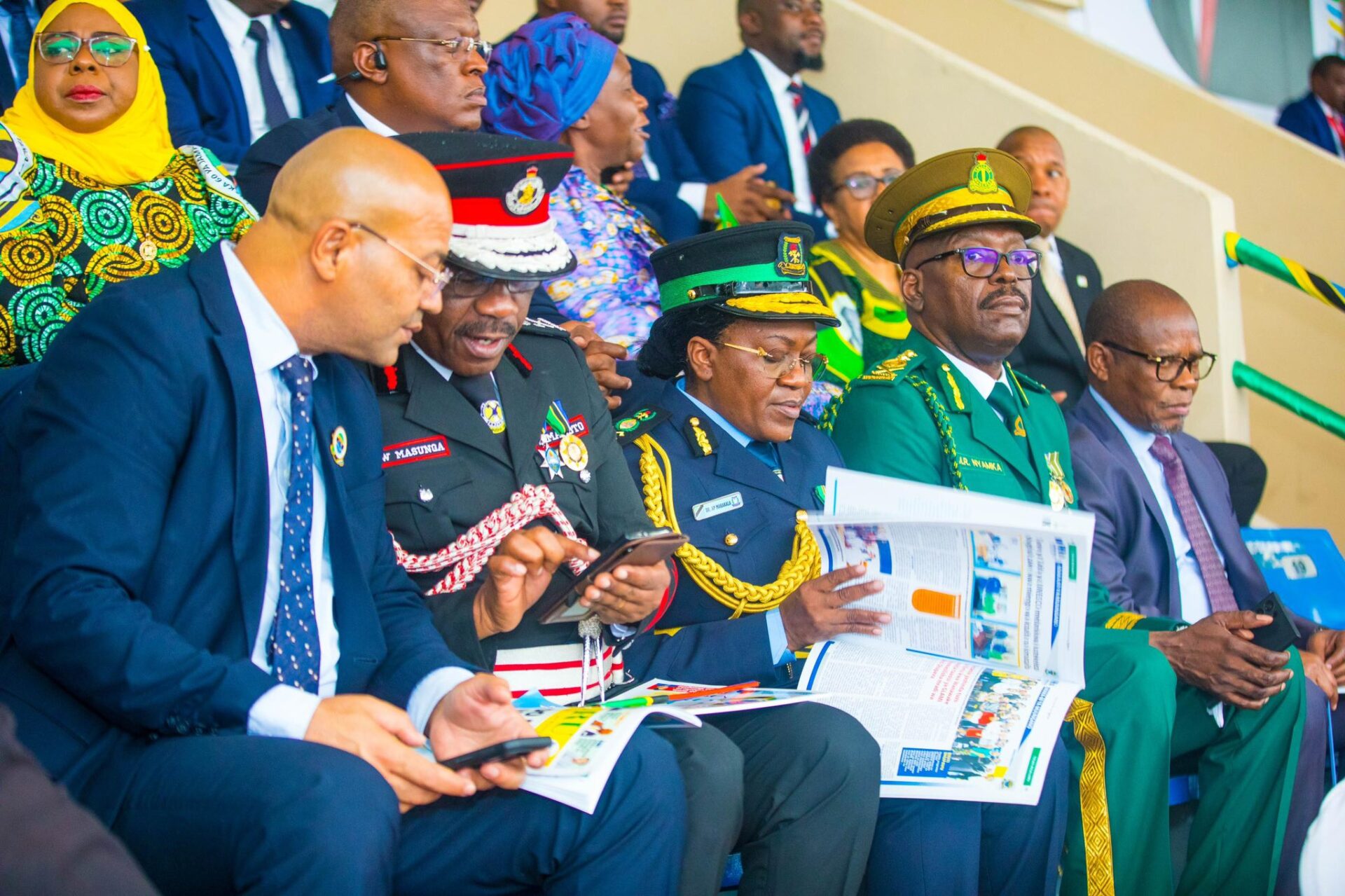
The union of Tanganyika and Zanzibar in 1964 serves as a testament to the resilience and determination of the people of East Africa. This historic milestone laid the groundwork for the formation of The United Republic of Tanzania, a nation built on the principles of unity, cooperation, and shared destiny. As we reflect on this momentous event, we are reminded of the enduring bonds that connect us and the transformative power of unity in shaping the course of history.
The United Republic of Tanzania serves as a shining example of the strength that can be derived from diversity and the potential that can be realised when disparate elements come together in harmony. The union of Tanganyika and Zanzibar serves as a beacon of hope and inspiration, reminding us of the boundless possibilities that can be achieved when we stand united as one.
Celebrating 60 Years of Tanzanian Statehood: A Journey of Prosperity and Unity
On this momentous day, we come together to commemorate the establishment of the Tanzanian state. As Tanzania celebrates its 60th anniversary, we extend our heartfelt wishes for continued prosperity and well-being not only for Tanzania but also for the entire continent of Africa. Tanzania Media will therefore undertake a brief examination of the remarkable journey of Tanzania, with a particular focus on the country’s achievements, challenges, and the path forward.
Historical Background:
Tanzania’s journey towards statehood commenced on 9 December 1961, when it gained independence from British colonial rule. The nation’s founding fathers, including Julius Nyerere, worked assiduously to unite various ethnic groups and create a unified Tanzanian identity. This spirit of unity has been a cornerstone of Tanzania’s progress over the past six decades.
Achievements and Progress:
Tanzania has made significant strides in various sectors, contributing to its overall development and prosperity. The country has witnessed remarkable economic growth, with sectors such as agriculture, mining, and tourism playing pivotal roles. Tanzania’s commitment to education has resulted in increased literacy rates and improved access to quality education for its citizens. The government’s efforts to improve healthcare services have led to a decline in infant mortality rates and the eradication of diseases such as polio.
Tanzania’s Role in Africa:
Beyond its own borders, Tanzania has played a crucial role in promoting peace, stability, and economic integration in Africa. The country has been actively involved in regional organisations such as the East African Community (EAC) and the African Union (AU), working towards a united and prosperous Africa. Tanzania’s contributions to peacekeeping missions in conflict-ridden regions have been commendable, showcasing its commitment to fostering stability and harmony.
Tanzania has achieved remarkable progress
Yet it also faces several challenges that require urgent attention. Poverty, inequality, and unemployment remain pressing issues that require sustained efforts to uplift marginalised communities. Climate change poses a significant threat to Tanzania’s agriculture-dependent economy, necessitating the adoption of sustainable practices. Additionally, improving infrastructure, enhancing governance, and attracting foreign investment are crucial for Tanzania’s continued growth.
The future outlook for Tanzania is promising
The government’s focus on industrialisation, infrastructure development, and investment in renewable energy sources will drive economic growth and create employment opportunities. The embrace of digital technology and innovation will further propel Tanzania’s development, ensuring its continued competitiveness in the global arena. Furthermore, continued investments in education and healthcare will empower Tanzanians and foster social progress.

May Tanzania’s success inspire other nations and may Africa continue to thrive, united and strong.
Happy 60 years of our Union!
Tanzania Media
- Kanyala Ferry Launch: TEMESA’s New Service for 15,000 Sengerema Residents (Mwanza) - 18 August 2025
- Russia-Tanzania Naval Cooperation: How the Smolny Training Ship Boosts Dar es Salaam’s Maritime Security - 18 August 2025
- Tanzania’s ICGLR Commitment: Stabilising the DRC & Great Lakes Region - 18 August 2025

